

Table ofcontents

Do Not Disturb Dark Star Pictures
4
BestFilmsofTheYear
Whether you're seeking thought-provoking content for educational purposes or diverse narratives for entertainment, these films stand out as noteworthy contributions to your institution's film catalog.
IcarusFilmsRecs.
Icarus Films has curated a selection of their recent acquisitions specifically with students in mind.
9
Librarian'sChoice
Video Librarian has teamed up with librarians across the country to bring you a curated list of film recommendations.
TheBestScreencasting SoftwareforEducators
Screencasting software has emerged as a crucial tool, enhancing classroom instructions and facilitating student presentations, collaborative projects, and much more.


The Best Films Of The Year
Whether you're seeking thought-provoking content for educational purposes or diverse narratives for entertainment, these films stand out as noteworthy contributions to your institution's film catalog.
DoNotDisturb

Directed by John Ainslie | Dark Star Pictures 92 minutes |Genre: Horror, Drama
Do Not Disturb starts o� as a simple drama and crescendoes into an intense psychological thriller. The slow change from a typical yet drug-tinged drama into pure horror is one of this film’s greatest strengths.
Unspoken
Directed by Stephanie Calabrese| Video Project
Runtime: 78 minutes | Genre: Documentary
This documentary serves as a stark reminder that history, particularly its darker chapters, should not be sanitized or forgotten. Unspoken emphasizes the necessity of learning from and acknowledging history as a crucial step toward preventing its repetition.
AndIStillSing
Directed by Fazila Amiri | Docuseek
Runtime: 90 minutes | Genre: Documentary

And Still I Sing tells the stories of three Afghani women involved in the reality competition TV show Afghan Star from their humble beginnings to the conclusion of their stories, displaying the highlights and pitfalls along with the harrowing events that follow the conclusion of the season.
And I Still


ThePeople'sJoker

Directed byVera Drew | Altered Innocence 95 minutes | Genre: Comedy, LGBTQ
An antidote to soulless AI art and a reclamation of beloved pop culture icons from heartless corporations, Vera Drew’s The People’s Joker subverts the familiar plot structure of a comic book origin story by retelling her own coming-of-age tale through the lens of the film’s trans protagonist, Joker the Harlequin.
HomeisaHotel

Directed by Kevin Wong & KarYin Tham | Video Project 92 minutes | Genre: Documentary
The educational documentary explores the realities of life in Single Room Occupancy (SRO) hotels and addresses broader themes of poverty, inequality, and the housing crisis. It would be a valuable addition to any film collection.

5 FILM RECOMMENDATIONS
FROM


Icarus Films has curated a selection of their recent acquisitions specifically with students in mind. These films, chosen for their relevance and potential to spark engaging classroom discussions, promise to be valuable resources for educators.


Lyd
2024 | 79 minutes | Arabic; Hebrew | English subtitles
The film Lyd chronicles the tumultuous history of a once-thriving Palestinian city, now known as Lod, Israel. For 5,000 years, Lyd was a bustling hub of life until its conquest during the establishment of the State of Israel in 1948. Through its exploration of Lyd's rise and fall, the film o�ers a poignant reflection on its past glory and present-day struggles.
YOUTH(SPRING)
2023 | 215 minutes | Mandarin | English subtitles
YOUTH (SPRING) is a deeply personal documentary that captures the lives of young garment workers with the raw intensity of the industrial sewing machines that drive their world. Over five years, the film o�ers an intimate look inside independent workshops, many nestled on a street ironically named Happiness Road.
EducationandNationalism
2023 | 108 minutes | Japanese; English | English subtitles | [cc]
The documentary, Education and Nationalism, chronicles the escalating government influence over Japanese history and social science education within the past decade. This trend, championed by the late Prime Minister Shinzo Abe, serves as a stark warning about the perils of nationalist governments dictating educational content. Such interference is a global concern with implications far beyond Japan's borders.
MambarPierrette
2023 | 93 minutes | French; Bamileke; Cameroon Pidgin | English subtitles
Cameroonian filmmaker Rosine Mbakam's narrative debut, Mambar Pierrette, o�ers a poignant portrait of a seamstress struggling to support her family in Douala. As she navigates the challenges of daily life, including a flooded workshop, Mbakam's naturalistic approach captures Pierrette's resilience in the face of adversity, creating a quietly powerful story of strength and determination.
Nikah
2022 | 56 minutes | Uygur | English subtitles
Nikah is a compelling story about Dilber, a young Uyghur woman facing immense pressure to marry as her family grapples with the escalating crisis of internment. While her younger sister embraces married life, Dilber navigates personal uncertainty against the backdrop of a terrifying reality: her sister's husband has been detained.
Nikah
LIBRARIAN'SCHOICE
Looking forthe perfectfilmto enrichyourlibrary’s collection orcaptivateyouraudience? Lookno further!Video Librarianhasteamed upwithlibrarians acrossthe countryto bringyou acuratedlistof film recommendations. Fromthought-provoking documentariestothrilling dramas,these expertselected films are designedto inspire, educate, and entertain.

I Am Big Bird: The Caroll Spinney Story
2014 | 90 minutes | Documentary
Through intimate interviews and rare archival footage, I Am Big Bird delves into the life and career of Caroll Spinney, the beloved puppeteer behind Sesame Street's Big Bird and Oscar the Grouch. It captures the emotional depth and enduring impact of Spinney's contributions to children's television, showcasing his artistry, resilience, and the profound connections he forged with audiences worldwide.
Recommendedfor: Courses on the history of television and children's media, Studies in puppetry and performance arts.
How to Blow Up a Pipeline
2022 | 104 minutes | Thriller, Action
Adapted from Andreas Malm's provocative book, How to Blow Up a Pipeline is a gripping narrative that delves into the ethics and tactics of radical environmental activism. The film explores the complexities and moral quandaries faced by those who believe that extreme measures are necessary to combat climate change.
Recommendedfor: Sociology classes, Cinema Studies
Sighted Eyes/Feeling Heart
2017 | 118 minutes | Documentary
Sighted Eyes/Feeling Heart is a revelatory documentary that o�ers an intimate and comprehensive look at the life and work of Lorraine Hansberry, the groundbreaking playwright whose A Raisin in the Sun shattered barriers on Broadway. Through rich archival footage, personal letters, and insightful interviews, the film illuminates Hansberry as not only a brilliant artist but also a passionate activist and complex individual.
Recommended for: Courses on African American history and culture, Women's studies, Theater history, Social justice studies, and Documentary filmmaking.
1917
2019 | 119 minutes | War, Action, Drama
Shot with an astonishing single-shot technique, the film follows two British soldiers on a perilous mission to deliver a life-saving message across enemy territory during World War I. Through its pacing, stunning cinematography, and intimate portrayal of the horrors of war, 1917 o�ers a haunting and unforgettable cinematic experience.
Recommended for: History courses, Filmmaking courses, War cinema courses

King Richard
2021 | 145 minutes | Drama | (cc)
This biographical drama chronicles the extraordinary journey of Richard Williams, the visionary father behind tennis legends Venus and Serena Williams. The film delves into the complexities of Richard's character, showcasing his unwavering belief in his daughters' potential and his unconventional methods to nurture their talents. Set against the backdrop of Compton, California, the film o�ers a raw and authentic portrayal of the challenges and triumphs faced bytheWilliams family.
Recommended for: Courses on sports cinema, sociology
Looking for the Wild: Unai’s Journey
2016 | 70 mins | Documetary | SDH subtitles
Looking for the Wild: Unai’s Journey is a captivating documentary that follows a young boy and his family on an extraordinary adventure across the globe. Unai, a curious and adventurous ten-year-old, joins his nature photographer father on a quest to capture images of seven iconic animals facing critical threats. This immersive experience transforms into a powerful exploration of the delicate balance between humans andwildlife.
Recommended for: Environmental studies courses, wildlife conservation programs
Big Sonia
2017 | 93 minutes | Documentary | (cc)
Through intimate storytelling and vivid imagery, the film follows the life of Sonia Warshawski, a Holocaust survivor turned spirited businesswoman. As Sonia faces the prospect of closing her beloved tailor shop after decades of operation, the film becomes a poignant exploration of legacy, loss, and the enduring powerofthehuman spirit.
Recommended for: Courses on Holocaust studies, documentaryfilmmaking
Buffalo Death Mask
2013 | 23 minutes | Experimental Documentary
Bu�alo Death Mask is a poignant short experimental film by Canadian filmmaker Mike Hoolboom. Through its abstract visuals and evocative storytelling, the film reflects on the personal and collective memories of the AIDS epidemic, capturing the haunting beauty and profound sorrow of those a�ected.
Recommendedfor: Courses on thehistoryandlegacy of the AIDS epidemic, Filmmaking courses exploring experimental cinema.
King Richard


TheBestScreencasting SoftwareforEducators
Screencasting software has emerged as a crucial tool, enhancing classroom instructions and facilitating student presentations, collaborative projects, and much more. However, choosing the right screencasting software involves several key factors.
Usability and Ease of Use - The software should be intuitive and user-friendly, allowing both educators and students to create content with minimal learning curves.
Recording Features - Look for software that offers a variety of recording options, such as screen capture, webcam integration, and audio input, to provide versatility in content creation.
Editing - Robust editing features are essential for polishing recordings. This includes trimming, adding annotations, inserting multimedia elements, and other tools to enhance the final product.
Cost - Budget constraints are always a factor in educational settings. It's important to find software that provides a good balance of features and affordability, ensuring that it meets the needs of the classroom without breaking the bank.
Here are our picks for the best screencasting software programs.
ScreenPal
ScreenPalisaversatileanduser-friendlyscreen recordingsoftwarethatisgreatforeducatorswho arenewtoscreencasting.Withaquicksetup,users caneasilyrecordtheirentirescreenorselect specificregions,anditsupportssoundrecording withtheuseofasoundcard.Oneofitsstandout featuresistheabsenceofwatermarksonthefinal videos,makingitanexcellentchoiceforcreating instructionalcontent.
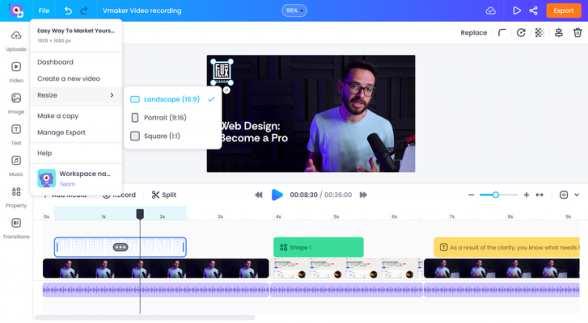

Vmaker
VmakerAIisascreenrecordingtoolwithabuilt-in, AI-powerededitorthatcantransformyourlectures intoengagingpresentationsinminutes.This softwareanalyzesyourrecordingsand automaticallyaddsintros,transitions,animations, andevenbackgroundmusic,savingyouhoursof editingtimewithoutsacrificingquality.

Screencastify
Educators looking for a user-friendly screen recording tool will love Screencastify. It seamlessly integrates with Google Classroom, allowing for easy recording, while offering helpful resources specifically designed for educational uses. While the free version lacks editing features, Screencastify's ease of use makes it a great all-around option for creating engaging video lessons and resources.
Camtasia
While Camtasia may cost more than some competitors, educators will find it a userfriendly and versatile tool for creating professional-looking instructional videos. Its intuitive interface and powerful audio editing features, which can clean up soft voices and background noise, make it ideal for crafting clear and engaging videos.
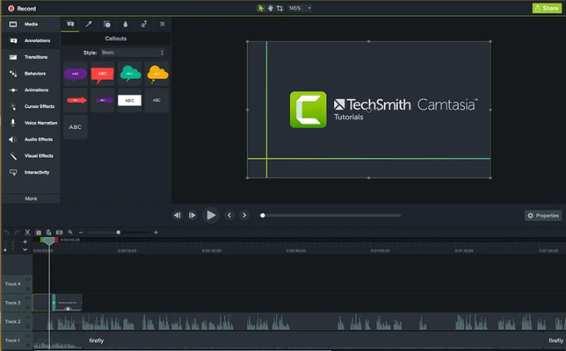

Loom
With Loom, teachers can record short video lessons or tutorials to share with students anytime, eliminating the need to schedule meetings and work around busy schedules. This can be particularly useful for asynchronous learning or providing additional explanations outside of class time. However, it’s important to keep in mind that Loom’s cloud storage is public by default, so avoid recording sensitive content.


An interview with



�e Cure for Hate
Killing Us Softly
Video Librarian
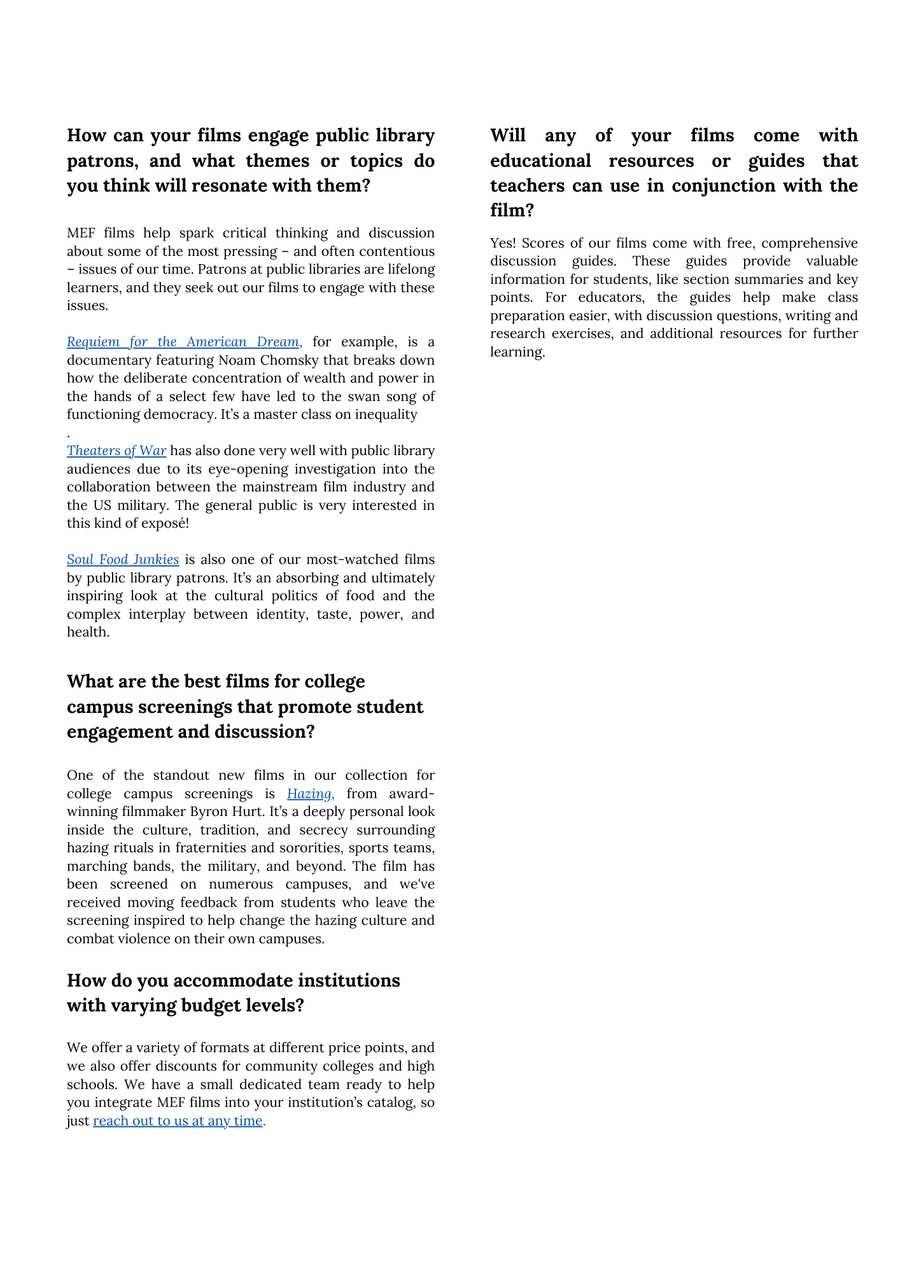

Hazing
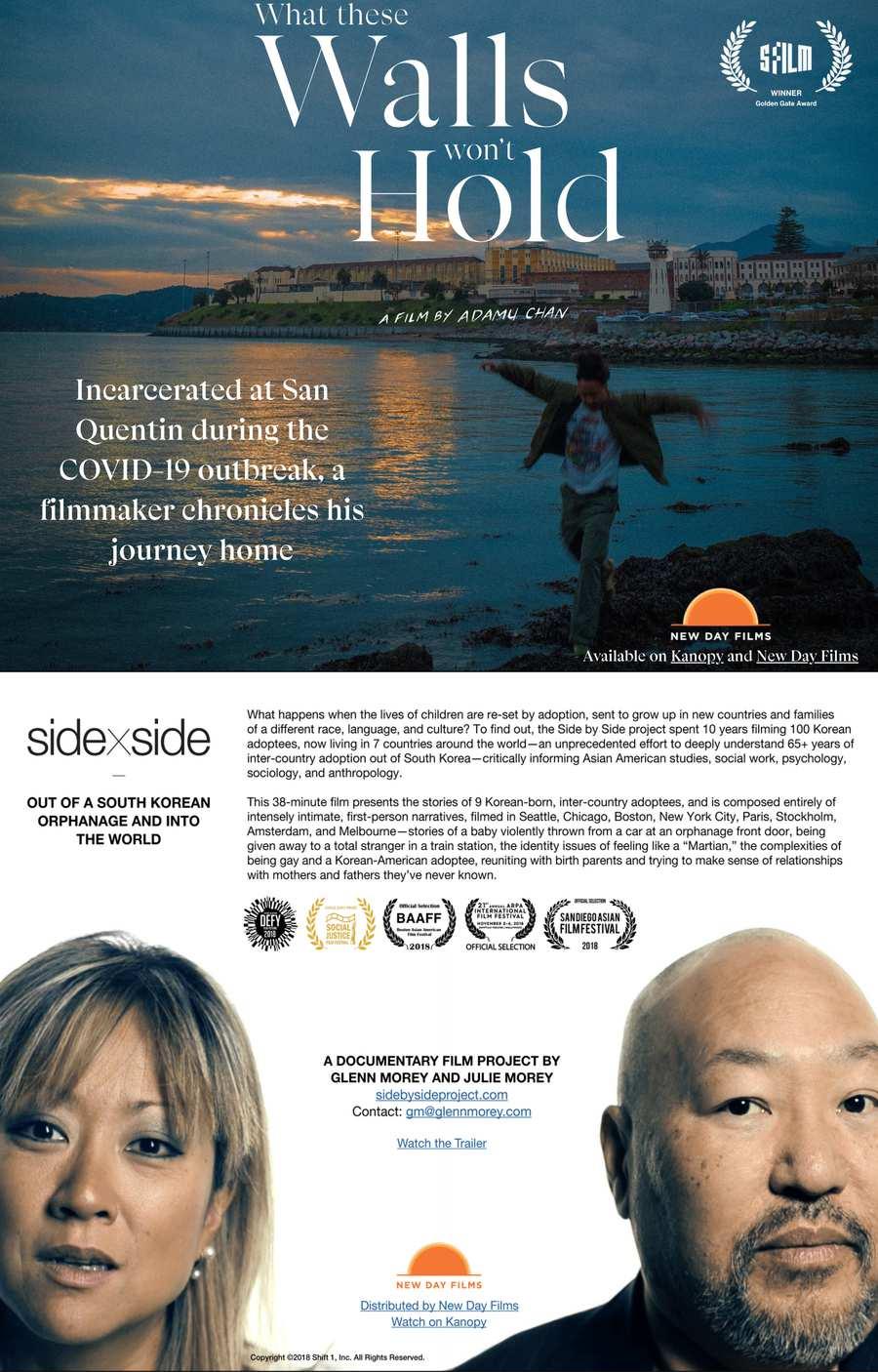


An interview with
PRAGDA
Can you share some of the key films you are releasing this fall that you think would resonatewithlibrarians/educators?
We are adding 200 titles to our streaming platform, Pragda STREAM, by the end of the year, bringing our collectionto atotal of 700+titles. Some relevant titles include the documentaries A Place Called Music, featuring the captivating musical encounterbetweenAmericancomposer Philip Glass and Mexican Wixárika musician Daniel MedinaandTanja- Up in Arms, a compelling story of a Dutch woman who joins the FARC guerrillas inColombia.
Additionally, we are adding engaging fiction films that have charmed audiences at film festivals to the platform. Some of the titles include festival darling La Suprema, where an Afro-Latin teen convinces her rural Colombian village to find a way of watching her uncle compete in a world championship boxing match; Manuela, a thrilling drama about a young Latina nanny and her connection with the defianttwo-year-old she'shiredtolook after; the latest by Carlos Lechuga, Vicenta B, a chronicle of the postCuban revolution through the eyes of a Santera; and Love and Mathematics, an award-winning comedy from Mexico thatfollows aformerboyband member tryingtoresurrecthismusiccareer.
Our educational new releases include titles worth highlighting for Hispanic HeritageMonth(Sep.15–Oct.15),suchas Home is Somewhere Else, a poignant animated documentary that tells the stories of young immigrants in the United States, capturing their struggles, dreams, and the complex realities of living between cultures; Boston Latin Quarter, an exploration of the neighborhood’shistory, struggles, and its impact on the city and the next generation of Latinx; and Comala, where the filmmaker acts as a private investigator,delvingintothemysteriesof his estranged father’s life and death as a Tijuana hitman. We’ve also partnered withPBStore-releaseseveralclassicPBS series such as The Graduates and Latino Americans, among many other titles on PragdaSTREAM.
Finally,wehaveafantasticselectionof10 new titles for our Spanish Film Club grant program that were announced in March but will start their campus tour this Fall semester. These films are selected for the program after months of deliberation. We look for titles that are botheducationalandinspiring;filmsthat willincitediscussionandentertainatthe sametime.
Some of the standout titles include The Padilla Affair, a gripping documentary that explores the life and trial of Cuban poet Heberto Padilla, whose imprisonmentin1971-
-sparked international outrage and debates on artistic freedom and censorship; Home is Somewhere Else an excellent resource for discussing immigration, identity, and resilience; Boca Chica, a beautifully shot narrative set in the Dominican Republic, that exposes how local social norms present thesexualizationofveryyounggirlsasa path to survival; Babygirl, an unsettling portrait of a middle-aged woman and her relations with family, servants, and entouragethatsmartlyinvertsthe‘maid asasecondmother’narrativetoexplore issues of class and race; Without Prescription, a genuine representation of what it means to struggle with obsessive-compulsive disorder (OCD) and mental health conditions in today’s health care system; Money Exchange, a thought-provoking thriller set in Buenos Aires that explores themes of corruption and moral dilemmas faced by ordinary people; Cassandro, an inspiring biopic staring Gael García Bernal, about the life of Saúl Armendáriz, a gay amateur wrestler from El Paso who overcomes prejudice andrisestointernationalstardom.
Will any of your films come with educational resources or guides that teachers can use in conjunction with thefilm?
We have developed Discussion Guides for the ten new releases in our Spanish FilmClubgrantprogram-
Love and Mathematics
-and most of the titles on that programhave similarresources.
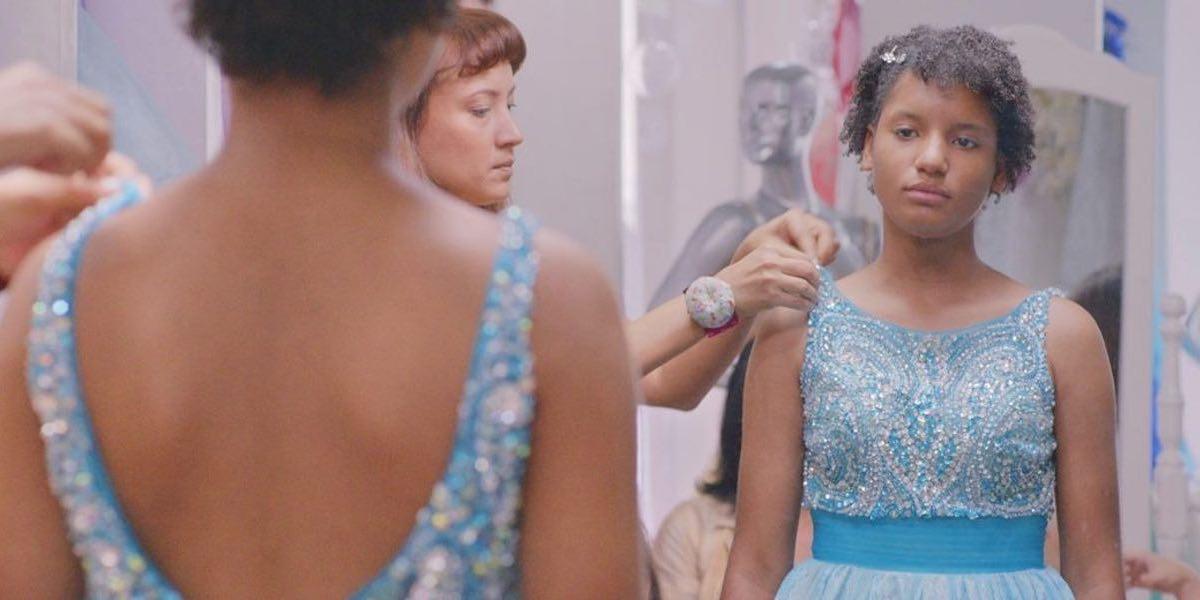
How do you accommodate institutions with varying budget levels?
Pragda STREAM adjusts its subscription and license prices based on the institution's size and resources. The Pragda Complete collection of 500 films can be purchased at an exceptional price, along with collections on different subject areas such as Latinx (39 titles), Afro Latin (67 titles), and Indigenous Peoples (51 titles), among manyothers.
We offer several DSL license options to universities. The most common are 3-year or Life of File licenses, but we also offer 1year licenses or Face-to-Face licenses upon request. Additionally, we provide discounts for bulk orders and during special periods such asyear-end orback-to-school months. Pragda also offers a credit system, allowing universities to purchase credits during times of available funds such as the end of the fiscal year, which can be used later to request specific titles. For example, a university could purchase 5 credits in May to request specific titles in August, as professors prepare theirclassroom materials.
For rentals, pricing is adjusted to fit the screening circumstances. For special requests and purchases, we recommend contacting us at education@pragda.com do discuss.
Can you provide a list of the top films for 2024 that are particularly popular among public libraries?
The top films for 2024 that have been particularly popular among public libraries strike the perfect balance between engaging storytelling and substantial subject matter, entertaining patrons while leaving them with thoughtprovoking insights. Titles include Guie’dani’s Navel, a compelling story about a young indigenous girl navigating life in Mexico City. This film has resonated deeply with audiences for its poignant portrayal of identity and resilience; Los Lobos, a heartwarming yet powerful film about a mother and her two sons who move to the United States in search of a betterlife has captivated viewers with its authentic depiction of immigration and the pursuit of the American dream; Miriam Lies, a gripping narrative that delves into themes of race, identity, and societal expectations in the Dominican Republic, this film has become a favorite forits nuanced and impactful storytelling.
In addition, some of our established classics remain among our best sellers. Machuca, a timeless film about the unlikely friendship between two boys from different social backgrounds in Chile during the dictatorship continues to be a staple in public libraries for its enduring relevance and emotional depth, and Bad Hair, known for its sharp social commentary and engaging narrative, this film from Venezuela about a young boy's struggle with his appearance and societal pressures remains a popularchoice.
What are the best films for college campus screenings that promote student engagement and discussion?
The whole catalog of Spanish Film Club filmshas been specially selected with this purpose. We go through great lens to choose a balanced selection that presents captivating stories rich in historical or social contexts that will encourage thoughtful conversations. In addition to the titles mentioned above, we’ve seen a lot of interest in the Mexican film Luchadoras, an intimate glimpse into the lives of three resilient female wrestlers in Ciudad Juárez, who courageously challenge traditional gender norms in the face of pervasive machismo and redefine the image of women in Mexico; and This Stolen Country of Mine, on assassinated presidential candidate Fernando Villavicencio’s fight to uncover the corruption of the Ecuadorian government that allows Chinese mining in the country.
We offer curatorial assistance to anybody interested in organizing a screening or festival featuring Latin American cinema. Our personalized recommendations and strategic advice ensure that each film choice aligns with the institution’s goals and maximizes engagement.
Miriam Lies
Video Librarian
By leveraging a deep understanding of cinematic trends, audience preferences, and thematic relevance, we help institutions curate a thoughtfully designed lineup that resonateswith theirtarget audience.
In addition to the film selection, organizing Q&As with directors after screenings is crucial for generating public engagement as it provides audiences with a unique opportunity to delve deeper into the creative process behind a film. These interactions allow viewers to ask questions, share their interpretations, and gain insights directly from the creators, fostering a more personal and enriching experience. Pragda is in close contact with filmmakers and facilitates theirparticipation.
How do you envision your films contributing to long-term educational goals or initiatives in schools?
Our films contribute significantly to long-term educational goals and initiatives in schools by promoting diversity and inclusion. As our collection primarily features films from Latin America, they offer unique perspectives on critical topics such as race, ethnic, and class disparity.
By incorporating these films into the curriculum, educators can foster a more inclusive learning environment that reflects the diverse experiences and backgrounds of their students. This exposure helps students develop a deeper understanding of global issues, empathy for different cultures, and critical thinking skills.
Additionally, our films serve as powerful tools for sparking discussions about social justice and equity, encouraging students to engage with and challenge the status quo. By highlighting underrepresented voices and stories, our films contribute to creating a more equitable and inclusive educational experience, which is essential for preparing students to be informed, compassionate, and active global citizens. This is especially relevant given the presence of Latino culture in the United States, where there are 60 million Latinos. Latin America is the US largest trading partner, and this strong relationship underscores the importance of providing students with the necessary context fortheirfuture professional endeavors.
How can your films engage public library patrons, and what themes or topics do you think will resonate with them?
Pragda’s collection features a wide range of genres, including entertaining comedies, romances, and series, many of which are from Latin America and touch upon topics of race, ethnic, and class disparity.
By incorporating these films into their offerings, public libraries can provide patrons with a diverse array of content that reflects a wide spectrum of experiences and backgrounds.
This not only enhances the library’s collection but also ensures that patrons of Hispanic descent, whose stories and experiences may not always be prominently featured, see themselves represented.
Are there any specific resources or support your company offers to librarians or educators to help them effectively incorporate your films into their collections/classrooms?
Pragda offers a variety of resources and support to help librarians and educators effectively incorporate our films into their collections and classrooms. We provide MARC records for easy cataloging and integration into library systems. Additionally, we offer tools for creating clips from our films, allowing educators to highlight specific sections relevantto theirlessons.
Our platform includes options for creating playlists, enabling educators to organize and sequence films and clips to align with their curriculum. We also offer editing tools that allow for customization and annotation, making it easierto tailorcontentto specific educational needs.
Our films come with subtitles in multiple languages to support diverse student populations, and we are expanding our collection of films with audio description options to ensure accessibility for all students. These resources are designed to enhance the educational experience and make it easierforeducators to utilize ourfilms effectively.
What can you share about any exciting projects or films slated for release in 2025 that our readers should be aware of?
Wehave several exciting projects and films slated for release in 2025. One of our major initiatives is expanding the reach of Pragda STREAM to public libraries. This expansion will allow a broader audience to access our diverse and inclusive film collection, enriching the resources available to public librarypatrons.
Additionally, we are working on launching Pragda KIDS, which will feature a carefully curated collection of films designed specifically for children and teenagers, with the aim of entering the K-12 market. This initiative will provide educational and entertaining content that promotes cultural understanding and empathyamongyoungerviewers.
These expansions and new projects are part of our ongoing commitment to offering high-quality, diverse content that meets the needs of all audiences. We are excited about these developments and look forward to the positive impact they willhave on publiclibraries and educational institutions.
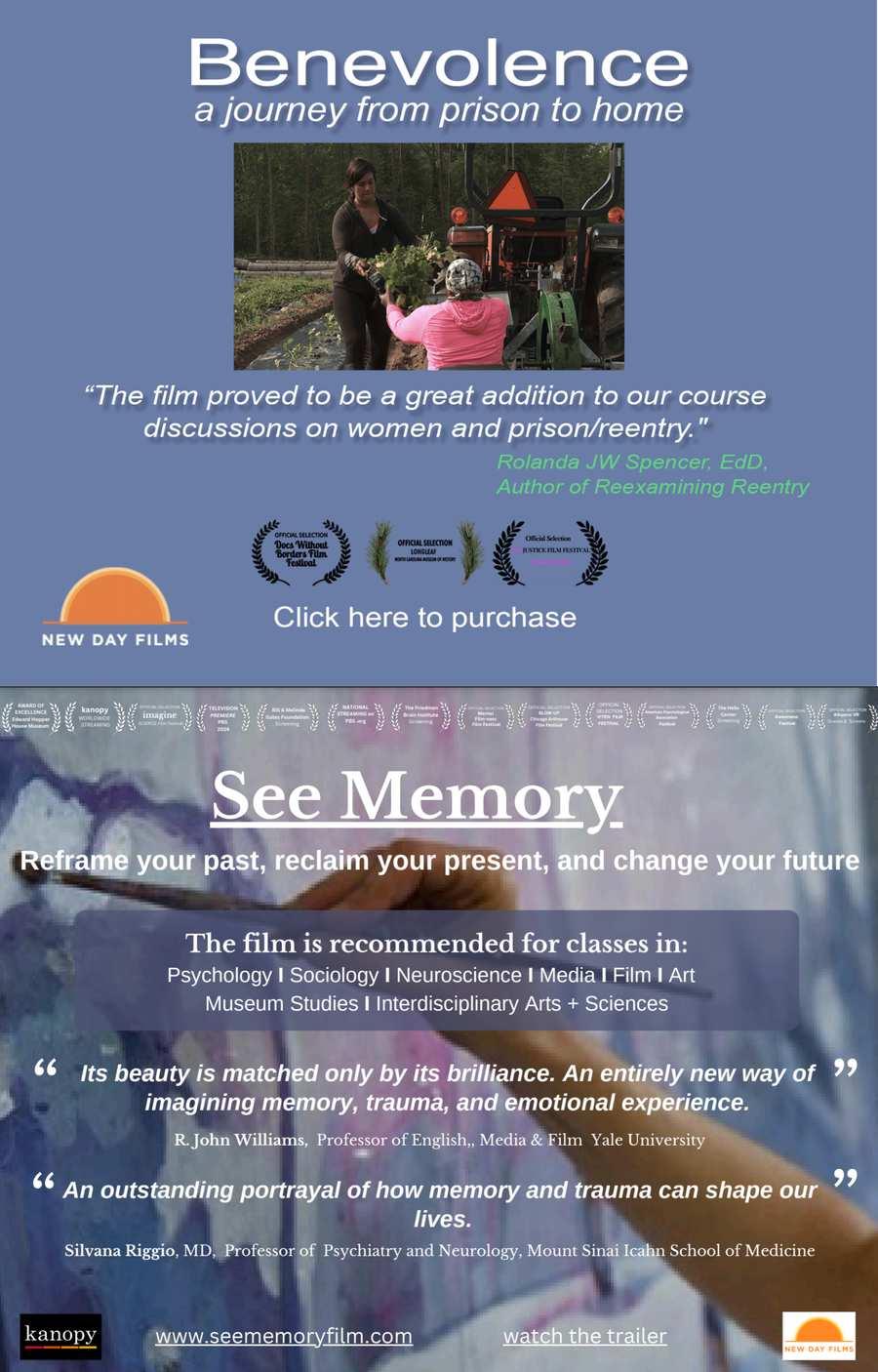
5 FILM RECOMMENDATIONS FROM

Bullfrog Films has selected a collection of documentaries specifically designed for student audiences. These films are chosen for their relevance to today’s world and their ability to inspire thoughtful classroom discussions.
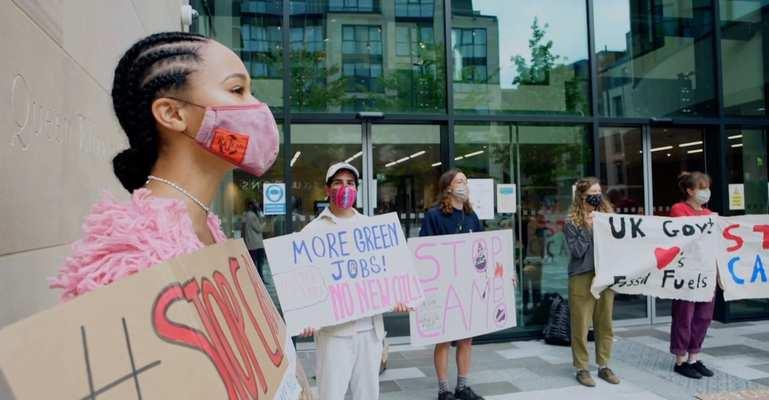
TheOilMachine
2023 | 81 minutes | English | SDH Captions
�e Oil Machine delves into our deep-rooted relationship with oil, examining its economic, historical, and emotional impact. By focusing on the North Sea, the film exposes the complex web of interests surrounding this vital resource. As pressures mount for change, the film questions oil's future and explores how to manage, dismantle, or reinvent this powerful force in our lives.


RegeneratingLife
2023 | 137 minutes | English | SDH Captions
Regenerating Life takes a holistic view of the climate crisis, focusing on the intricate relationship between humanity and nature. It goes beyond conventional understandings of global warming, which often center on fossil fuel emissions. Instead, the film delves into the broader impact of human actions on Earth's ecosystems, highlighting the crucial role of biodiversity in regulating our planet's climate.
BecomingAnimal
2024 | 79 minutes | English | [cc]
A potent collaboration between filmmakers Emma Davie and Peter Mettler, renowned for their works �e Oil Machine and �e End of Time respectively, and the influential thinker David Abram, author of �e Spell of the Sensuous, Becoming Animal is an urgent exploration of the intersection between humans and other creatures. Through immersive audiovisual storytelling, the film invites viewers to witness the natural world with renewed sensory awareness, prompting profound reflection on our animal nature and our place within it.
WorksForAll
2023 | 31 minutes | English | SDH Captions
Works For All spotlights several worker-owned cooperatives within its network, many of which are led by historically marginalized individuals within the U.S. economy. Co-op Cincy plays a pivotal role in transforming these businesses, o�ering training and support. Their work to convert retiring business ownerships into cooperatives is particularly promising for the future.
OrchestratingChange
2021 | 85 minutes | English | SDH Captions
Orchestrating Change is an inspiring documentary that follows the Me2/Orchestra, a groundbreaking ensemble of musicians living with mental illness. Through captivating storytelling and stunning animation, the film challenges stereotypes, celebrates resilience, and empowers a community.
�e Oil Machine
An interview with
BULLFROGFILMS
Can you share some of the key films you are releasing this fall that you think would resonate with librarians/educators?
Project Q; War Peace Quantum Mechanics is a staggering film, asking who will win, what are the risks, and what will it mean for war and peace, as university labs, big-tech and major powers race for supremacyin newquantum technologies.
Written On The Landscape: Mysteries Beyond Chaco Canyon maps the astounding reach of Chacoan astronomy and spiritual traditions with buildings and "roads" aligned across 70,000 square miles of the American southwest, a complex culture, connected to the ancient cultures of CentralAmerica.
Single-Use Planet discovers the source of single-use plastic that is clogging waterways and polluting the ocean. Upstream are massive single-use plastic plants making use of ever more extracted fossil fuels in Pennsylvania and down-pipeline Louisiana, health and climate-busting plants approved by legislators flush with petrochemical money.
Will any of your films come with educational resources or guides that teachers can use in conjunctionwiththefilm?
Many of them. Written On The Landscape and SingleUse Planet both come with extensive Discussion, Coursework, and Resource Guides. When films are placed on our community screenings site, bullfrogcommunites.com, they are accompanied by resources, press stills, discussion guides, and posters useful for library and community public performance events.
How do you accommodate institutions with varying budgetlevels?
We have separate pricing for public libraries, K-12 schools, community colleges, and at the top with 4-year colleges we price our streaming licenses based on the institution's Carnegie classification.
Can you provide a list of the top films for 2024 that are particularlypopularamongpubliclibraries?
So far this year most popular films in public libraries have been Orchestrating Change, about the Me2/Orchestra, the only orchestra in the world created by and for people living with mental illness and those who support them, and Becoming Animal, a journey to Grand Teton NP with influential writer and geophilosopher David Abram exploring how the written word and technology have shapedhowwe engagewith the more-than-humanworld.
What are the best films for college campus screenings thatpromotestudentengagementanddiscussion?
Films that connect the choices student make in their daily lives to the world, such as The True Cost (Who really pays the cost for our "fast fashion"?), are always popular. Climate change has brought interest in understanding how The Oil Machine is embedded in the world's finance and cultures, and we think our new release Single-Use Planet will carry forward this direct connection. No matter how much we individuallyrecycle, single-use plastic is everywhere.Why?
How do you envision your films contributing to longtermeducationalgoalsorinitiativesinschools?
Bullfrog's curated releases of strong films informing climate change decisions will be important in many disciplines for the foreseeable future. Our parallel focus on human strengths (Crutch, Truth Tellers, Runner) and inspiring paths to justice, such as: Climate- Regenerating Life, Cooked: Survival By Zip Code; Racial- Crime On The Bayou and The Lincoln School Story; Native AmericanAma and s-yéwyáw:Awaken
How can your films engage public library patrons, and what themes or topics do you think will resonate with them?
Our films are current and timely. Cooked: Survival By Zipcode has been very popular in churches and libraries now, not surprisingly, as we confront excessive heat this summer, and the inequality of relief our cities offer. Another release coming this fall is Virulent: The Vaccine War, a scientific and compassionate understanding of vaccinehesitancy, andwhat it means forpublichealth.
Video Librarian
Are there any specific resources or support your company offers to librarians or educators to help them effectively incorporate your films into their collections/classrooms?
While many schools are now streaming Bullfrog films through Docuseek2.com, with all the clipping, linkembedding features, we also release DVDs with options included SDH subtitles for the deaf and hard-ofhearing, and scene selection so faculty can highlig one part they wish to discuss in class. We have always maintained our replacement copy policy for physical media, so librarians need not fear the damaged, or disappearing DVD. Study guides are available linked from title pages on Bullfrog Films, and additional discussion questions and resources are available on th bullfrogcommunites.com pages.
What can you share about any exciting projects or films slated for release in 2025 that our readers should be aware of?
Every college department and every city trying to address the housing and homelessness crises will be able to use our new release, A Rising Tide, laying out a fundamental blueprint upon which solutions can be built.

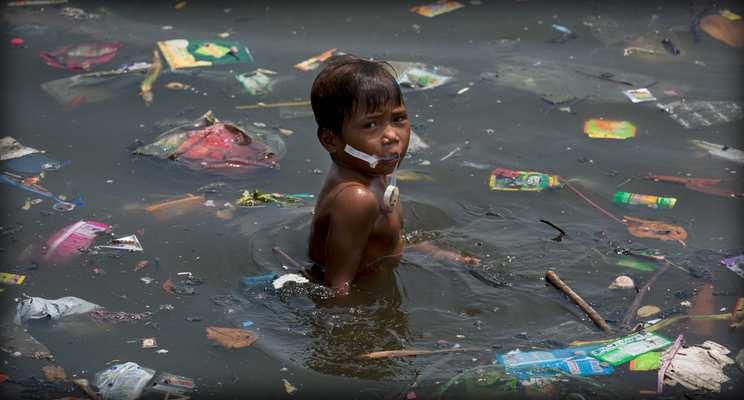
�e Lincoln Story

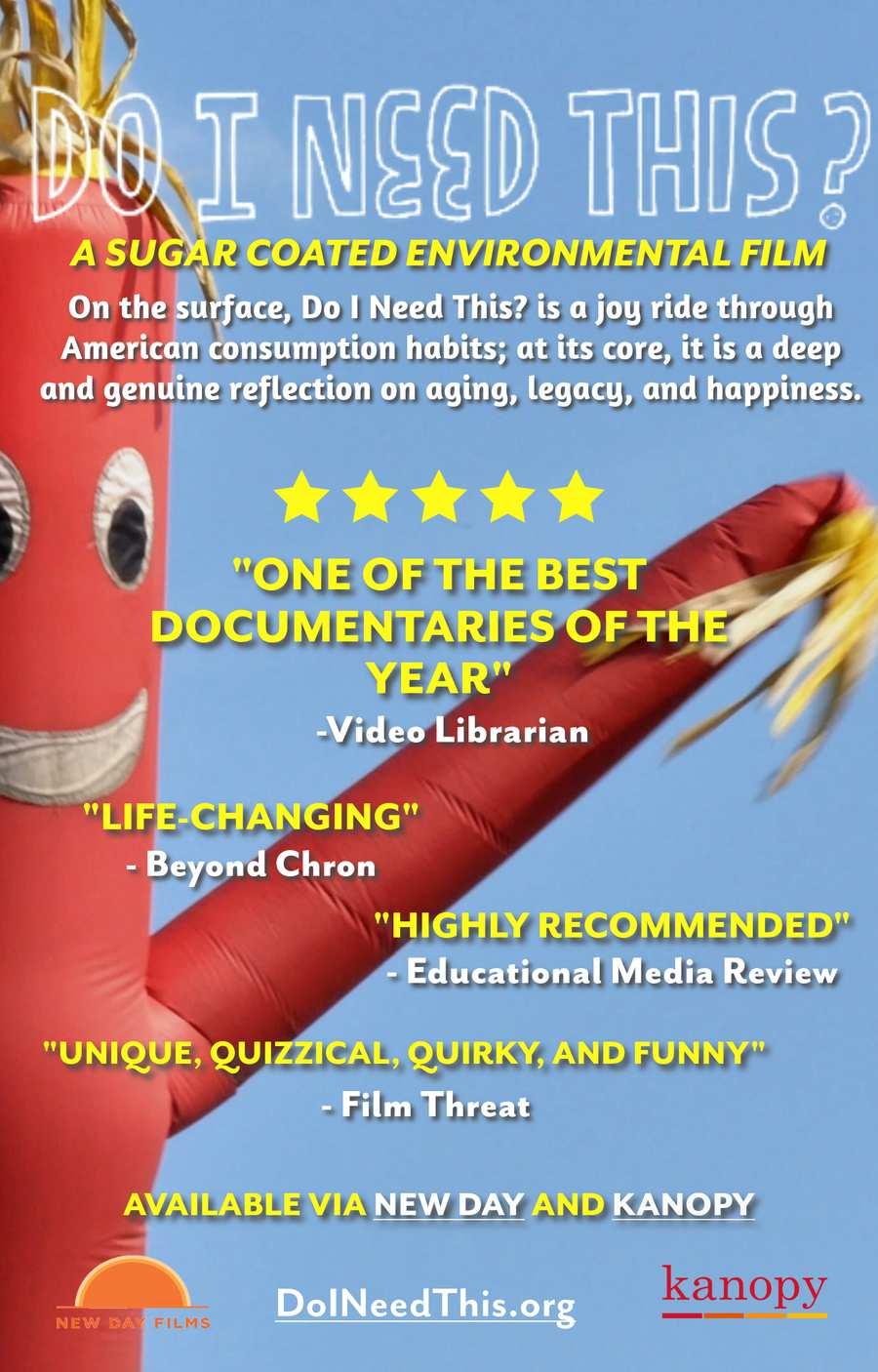
If you are looking for inspiration for your next film programming event, check out these recent events held at libraries across the country. This list includes four events, with ideas for both virtual and in-person programming. We will also include resources and answers to some questions about showing films atthelibraryyou mayhave.
How can I legally show movies at the library?
1. PASTPUBLICLIBRARYFILM SCREENINGSTODRAWINSPIRATION FROM
Public performance rights are the most important thing to consider to make sure your film screening is within legal limits. A public performance license grants you the ability to show movies to an audience that is not included in standard copyright. Oftentimes, you can attain a public performance license directly through the film's distributor. Check our distributor database for an expansive list of film distributors.
2.
How much does it cost to show a film in public?
Although film programming events can be organized cheaply, it is important to budget for any technical equipment needed, as well as smaller items like popcorn and admission tickets. Cost will be based on your library and needs, but the average cost is typically between 100 and 300 dollars.
Some documentaries in Netflix's expansive catalogue are available for one-time educational screenings. Check out our article exploring these Netflix titles to learn more. 3.
Can I show a Netflix movie in public?
Promote a Holiday
The Aurora Public Library hosted a film screening of One (Nine) and a panel discussion for International Women’s Day. One (Nine) is an anthology film, created by nine women filmmakers despite isolating in di�erent parts of the world. Participants registered to receive a link to the film, which was available to watch all day. The panel discussion was conducted via Zoom later that evening, including Neila Pacheco, the chair of the Aurora Film Circuit and One (Nine) director, Ingrid Veninger. Neila Pacheco stated that this film was a great opportunity to showcase the di�erent roles women take on in film, saying, “We wanted to have a balance, recognizing Ingrid’s work and getting One (Nine) put together, and also the opportunity for women and film, their di�erent focuses, and howtheybring itto fruition.”


Host a Meta Discussion
The Hopewell Public Library hosted a discussion about film programming. Sta� librarian and host, Jamie Anderson, asked participants about their favorite films and tv shows, and the film programming events that have made them think. This gives library customersaplatformtodiscusswhattheyare passionate about and librarians a chance to hear what kind of programming is most interesting to their audience These discussions are held in person at the library, but participants are encouraged to register online beforehand. The Hopewell Public Library will host a similar event to discuss Marvelmovieprogrammingnextmonth.

Mixed Media Series
The Summit County Library’s “Book to Film Club” demonstrates a creative way to incorporate literature into film screenings. The monthly series screens a film based on a novel or highlights a memoir or nonfiction book that is relevant to the film. The Summit County Library began the Book to Film Club in 2014, and it is a popular attraction for many library customers. The most recent screening presented The Swimmer, based on the short story by John Cheever. The library includes resources on where to read the short story online, and where it can be found at the library to be checked out. The film screening is followed by an optional group discussion. The event is held in person with room for social distancing and masks encouraged. Upcoming summer titles for the Book to Film Club include Words on Bathroom Walls and Stardust.
Tie Into an Exhibition or Event
The Marshalltown Public Library (MPL) coordinated several programming events in preparation to host the “Americans and the Holocaust” exhibit from March 26 – May 6 2022. The library screened the film, Big Sonia, a documentary about a Holocaust survivor as she struggles to keep her tailor shop open. MPL director, Sarah Rosenblum, explained that she selected the film because of its strong message of survival, also seeing a connection between the tailor shop’s location at a dying mall and the strugglingmallinMarshalltown.Inadditiontothe in-person film screening, thelibraryalsohosted a bookdiscussion of Survivors Club:TheTrue Story of a Very Young Prisoner of Auschwitz in preparationfortheexhibition.
ReadourinterviewwithBigSoniafilmmaker,Leah Warshawski.
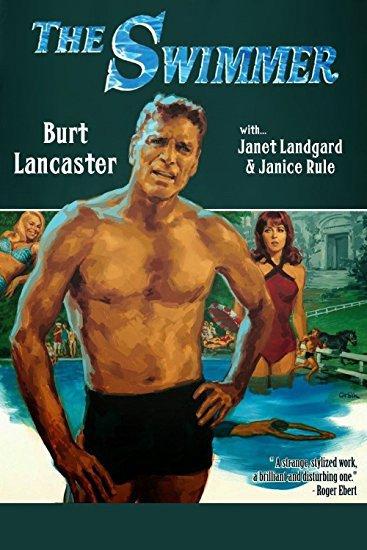
An interview with
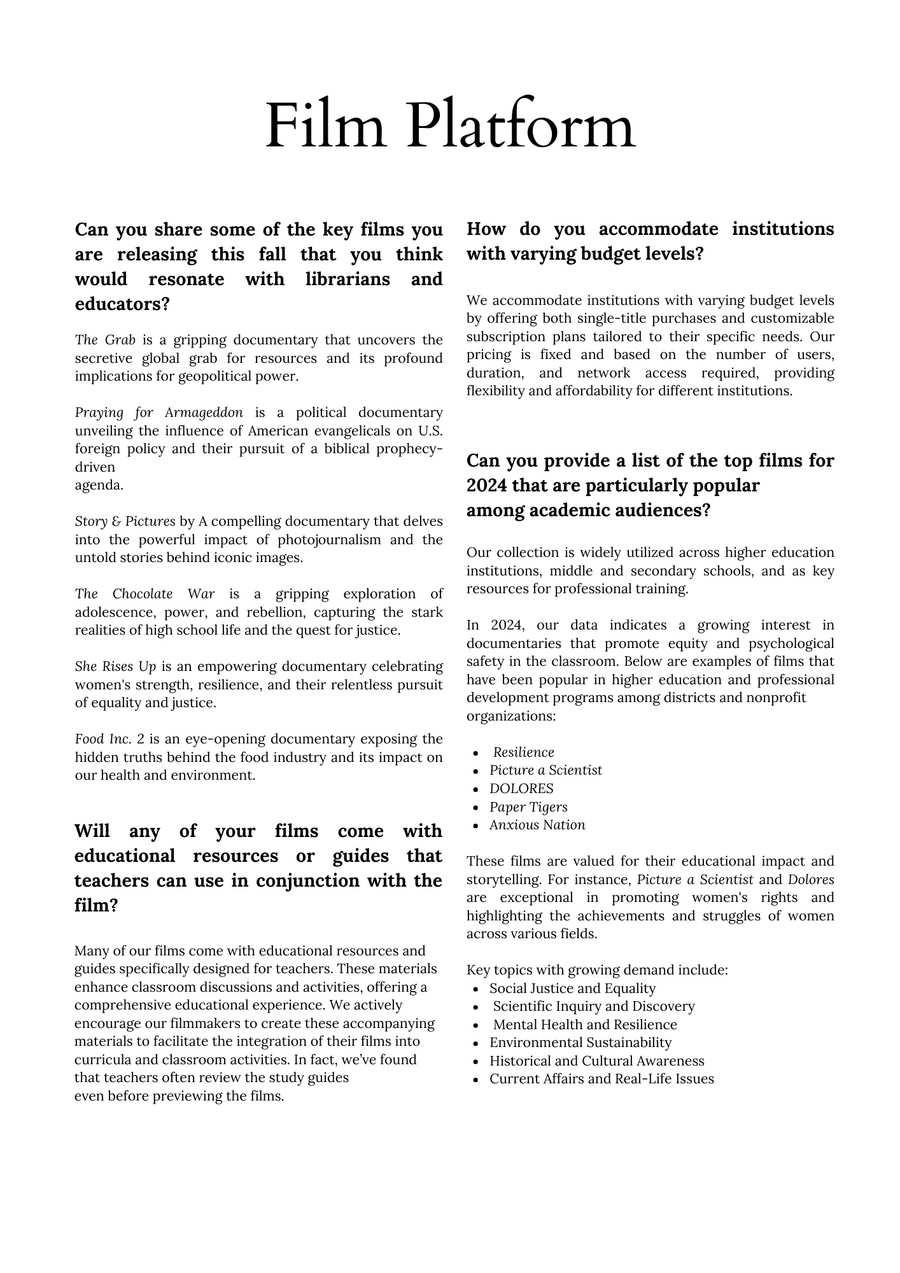
Video
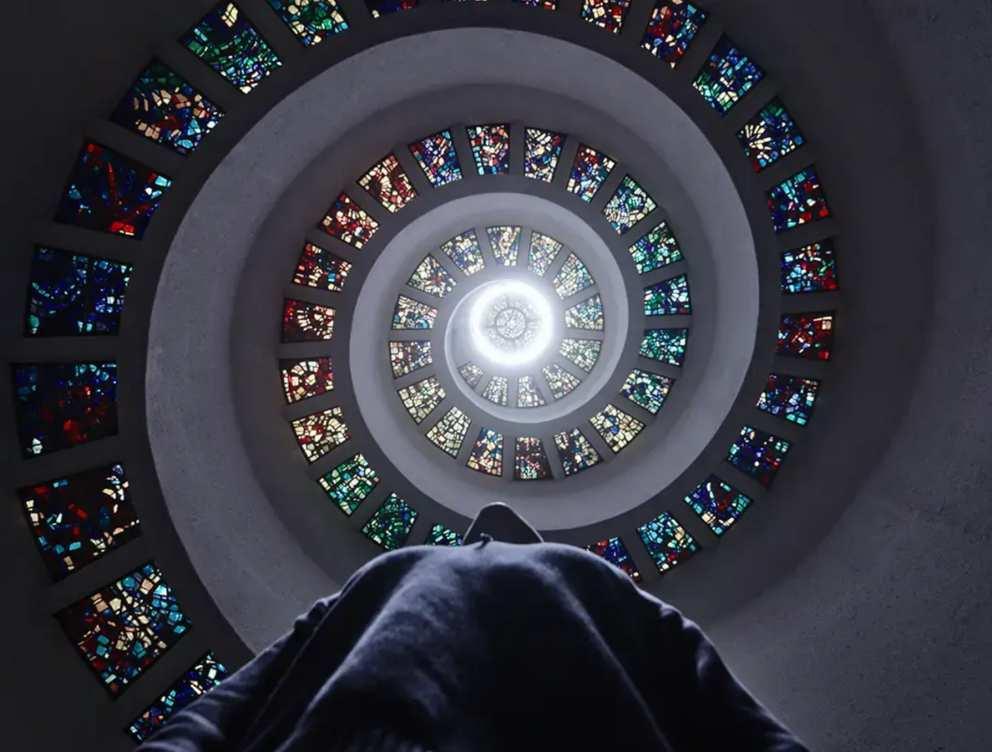

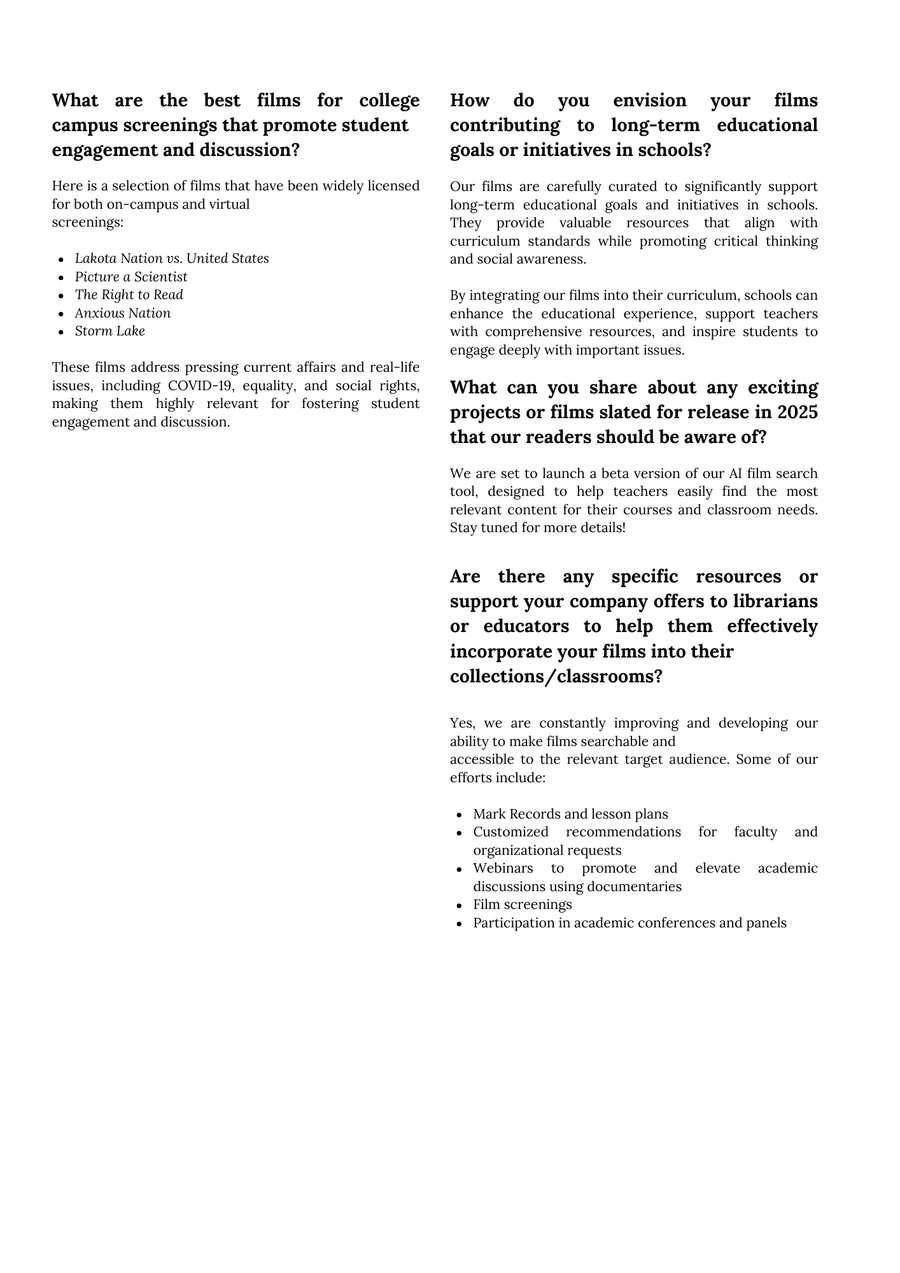
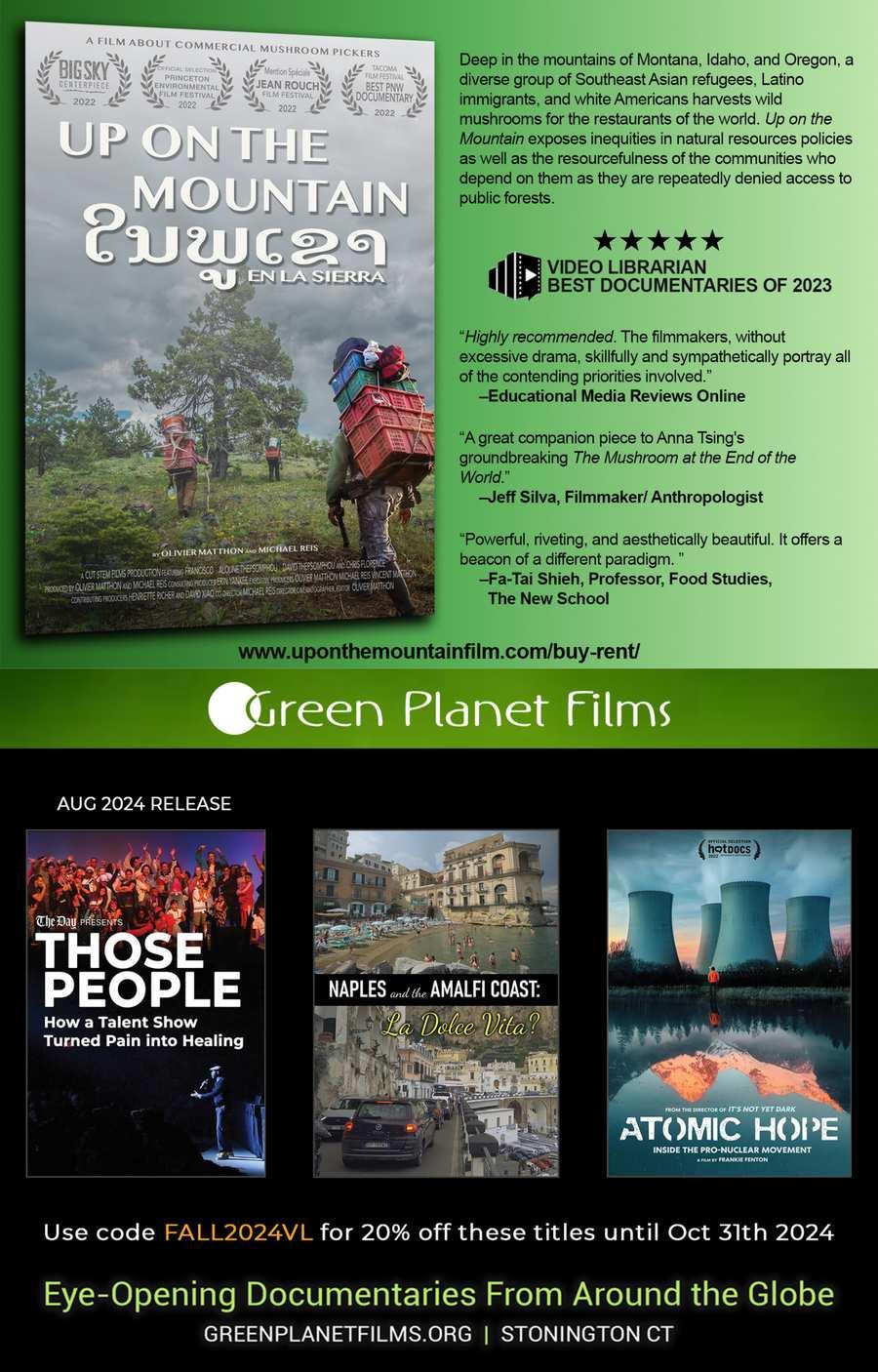
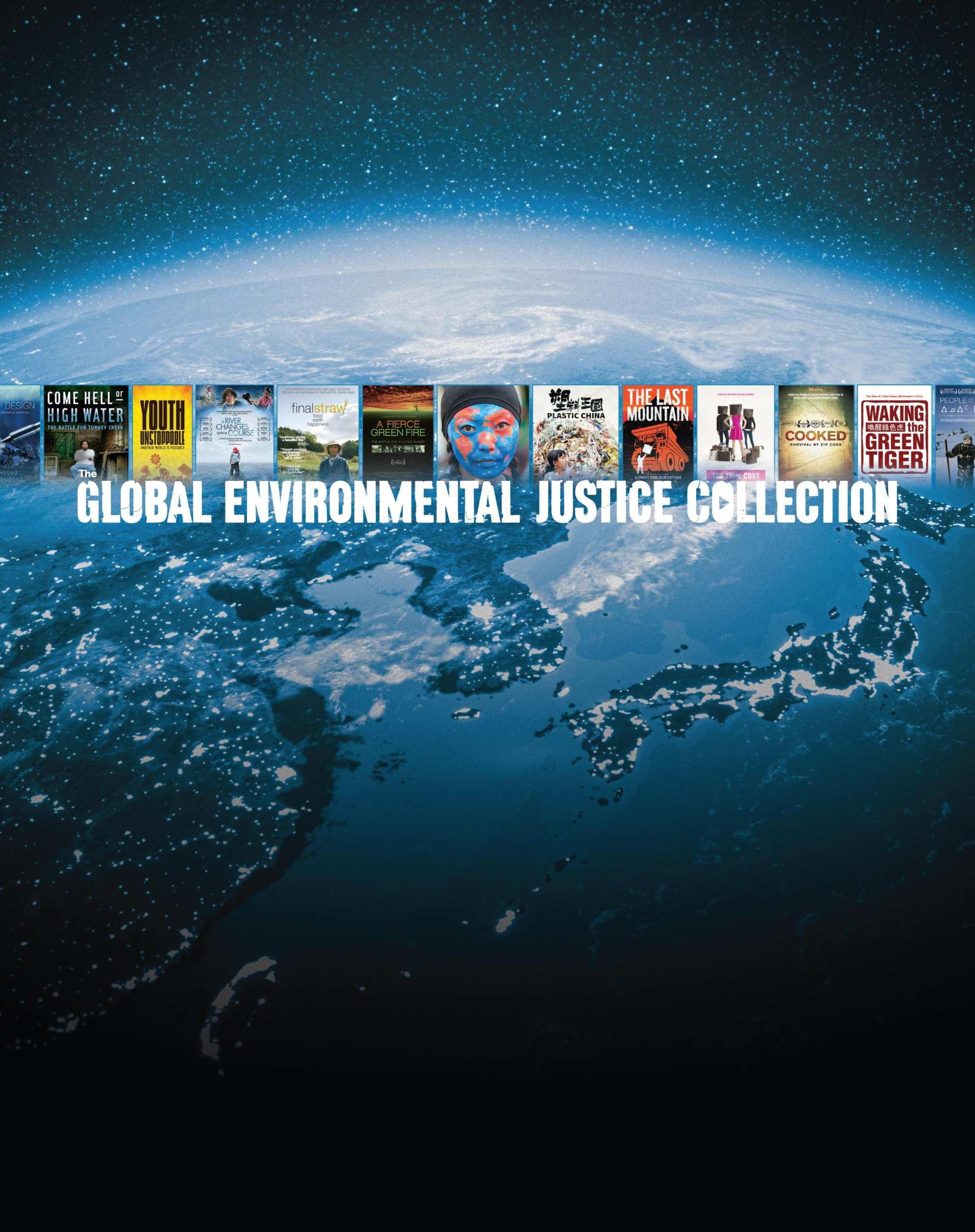
Global Environmental Justice: An Award-Winning Educational Documentary Collection
By Dorian Bowen & Gary Marcuse
In this interview, Video Librarian talks to Gary Marcuse, the Project Director of the Global Environmental Justice Project and Collection. The collection provides 48 educational documentaries to academic libraries.
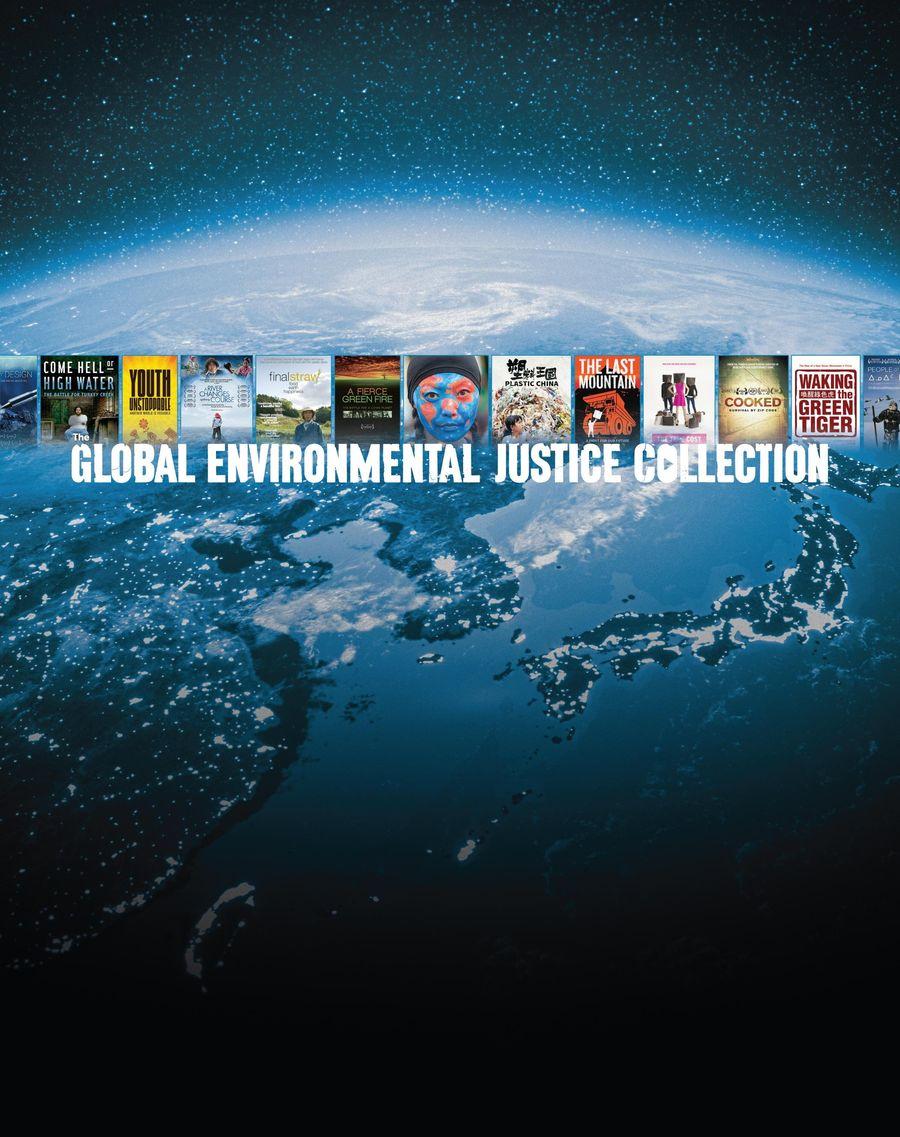

The award-winning Global Environmental Justice project was launched three years ago just ahead of the COVID crisis. In the beginning, the collection provided 25 documentaries that examine the question "What is environmental and climate justice?"as seen from many differentperspectives.
The project was just beginning to find an audience in undergraduate studies in the United States and Canada in 2020. Project Director Gary Marcuse was on his way to Boston from his home in Vancouver, British Columbia,to receive an award fromtheAssociation for Asian Studies for the new collection when the AAS conferencewas abruptlycanceled andvisits to colleges and universitieswere curtailed.
Today the Global Environmental Justice collection has expanded to 48 films and guides and it can be found in 80 college and university libraries in the US and Canada.
We invited Gary Marcuse, who is also an environmental filmmaker, to talk about this timely project.
Gary Marcuse: Well, it is timely, isn't it. And I think that's why it survived the pandemic. We weren't sure it would. At first, when college campuses emptied out, the idea of having a roomful of students gather to watch and discuss a documentary seemed like a distant memory. It was hard to find anyone to talk to. Faculty were too busy sorting out how to put their courses on Zoom to pay attention to our emails. It seemed possible that several years work by a group of faculty curators selecting films and writing teacher's guides mightbe shelved.
But I should have had more confidence in the faculty and librarians I met earlier when I was touring one of my own films - Waking the Green Tiger - about the rise of a green movement in China. They told me that students were deeply concerned, sometimes overwhelmed bythe environmental crisis.

What they needed now, they said, was a collection of films that examine the intersection of human rights and environmental protection - and not just in environmental studies classes.The collection should be diverse, eclectic, engaging, respectful. It should support environmental literacy and inspire informed advocacy.
Documentaries, they said, would be effective. Their strength is their ability to present complex and nuanced stories. They bring the world into the classroom and they promote discussion. They are versatile. They can be used in a wide range of subject areas including Asian, environmental, AfricanAmerican and Indigenous studies. And in law, geography, anthropology, global health, filmmaking, creative writing, conservation biology, and many more. First-rate teacher’s guides would be essential, and of coursethe films should be easilyaccessible online
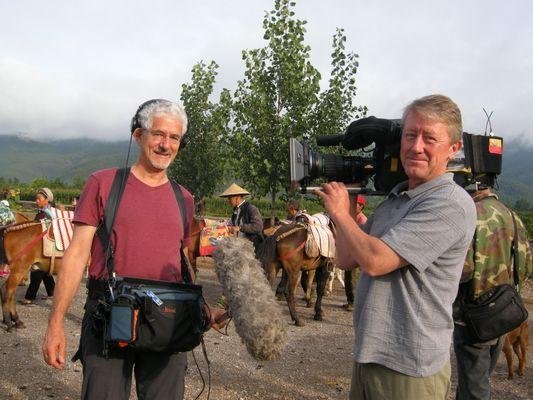
That was a tall order!
Gary Marcuse: There's more: The website should be easy to navigate and should offer the full suite of academic streaming services like those offered by Docuseek2, our digital platform. These include the ability to make and preserve clips, tagged PDFs, interactive subtitles, lists of clips for use when time is short and the provision of cataloguing information and MARC records.
One further requirement, if we were goingto succeed,would be a
low subscription cost. In the past I have organized two similar projects in Canada, one supporting medialiteracy, another supporting Indigenous studies. Both collections were highly affordable thanks to underwriting of the development stages. Both became standard resources in secondaryeducation in Canada for
The key is to find support for the up-front costs which are otherwise paid by the libraries. When I was talking with librarians atWhittier College, Ikeptlowering the subscription cost until I saw their eyebrows go up. We then set our sights on a subscription price of $395 USD per year for a threeyear contract. Compared to the usual pricing, that's 48 films for the typical cost of only two or three.
Here we were helped by the Henry Luce Foundation They have a mandate to improve student awareness of environmental issues inAsia.
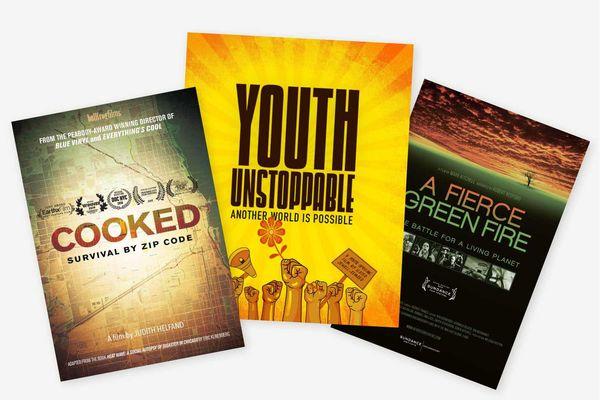

"Our goal is to have the support of 100 subscribers. That would make the project self-sustaining and allow us to go on adding more films and guides at no additional cost to current subscribers."
-Gary Marcuse
How did you select the films for the Global Environmental Justice Project and Collection?
Gary Marcuse: For more than a decade many film festivals have been adding a strand of films that deal with the environment. More recently entire festivals have been launched focusing on environmental stories. Thousands of films now fight for recognition by these fests. But sadly, a great many that would generate great discussions in class are lost to view or disappear behind pay walls. As I attended festivals I identified around 1500 films of interest and narrowed the list to 150. I then offered this shortlist to fifteen faculty (at Whittier, NYU, Yale, Bates, Webster and Brandeis) who each chose one or more films to teach in class andwrite up in aguide..
What kind of response have you had to the documentary film collection, particularly from academic libraries?
Gary Marcuse: We are making progress. This spring we reached the three-year mark, with the collection available in 80+ colleges and universities.
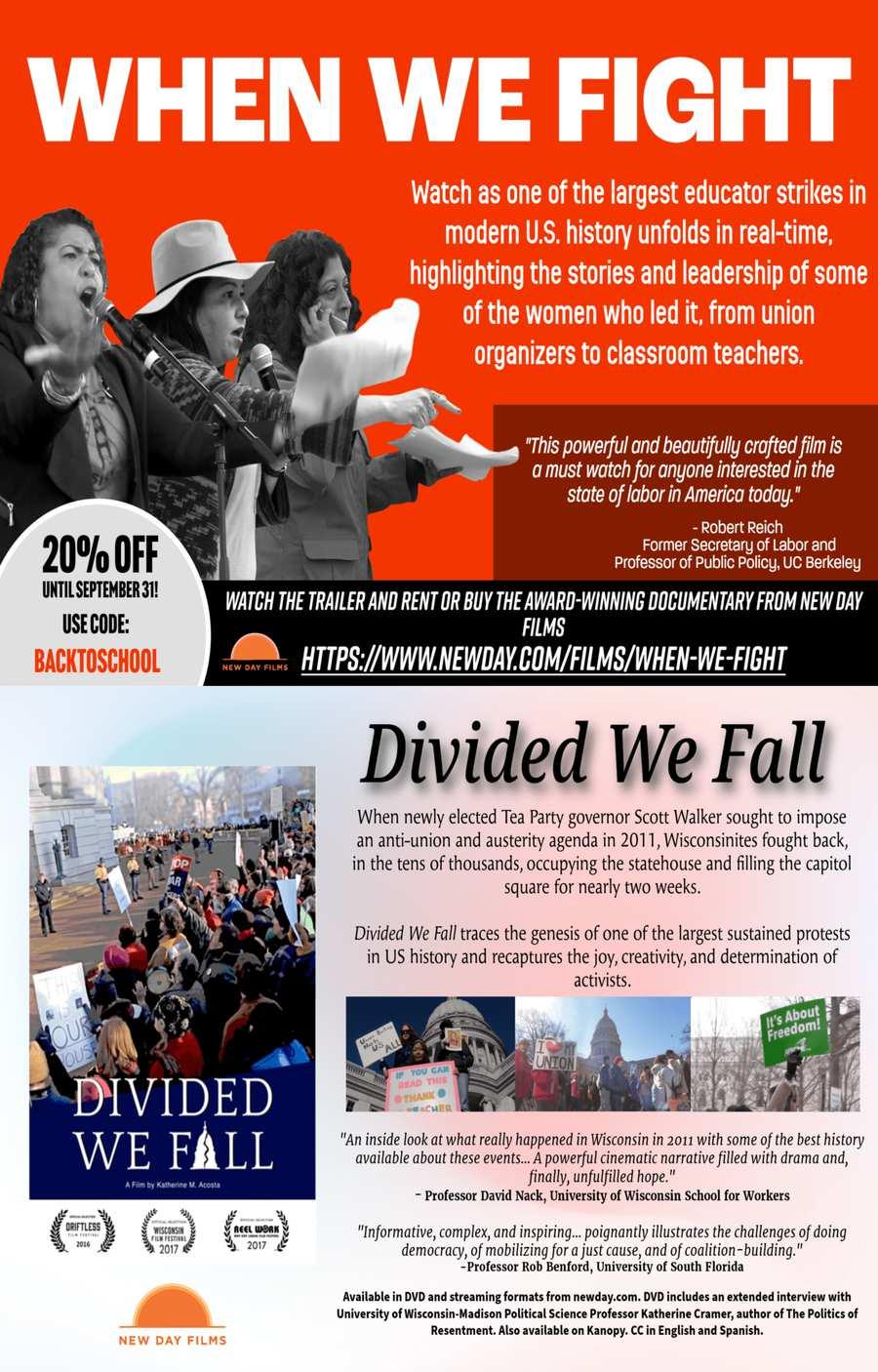
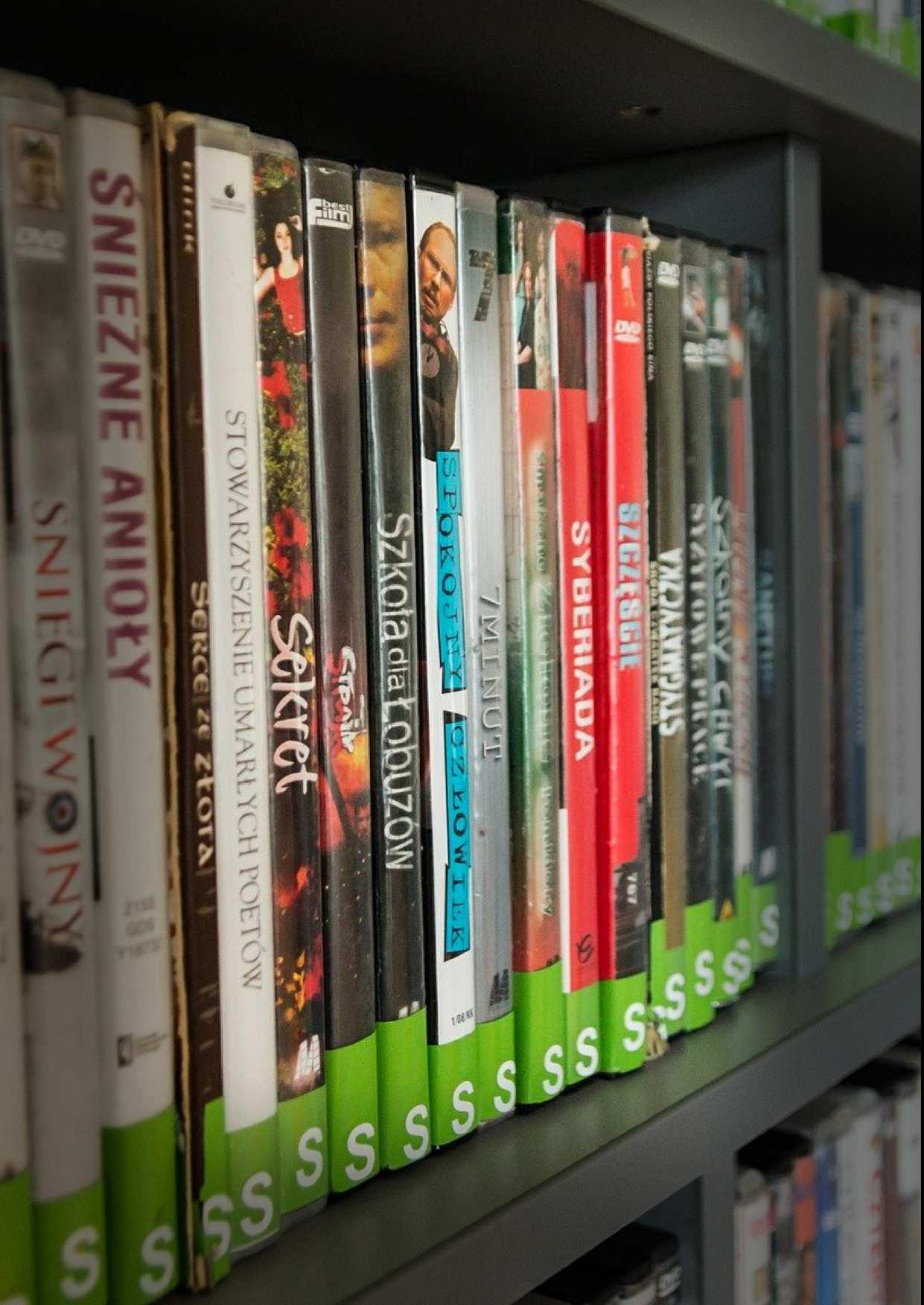
ReelFunat theLibrary: Movie-Themed Programs
Discover how to create unforgettable experiences for all ages while fostering a love of film. Get inspired with our ideas for film festivals and family-friendly events. Let's make your library the ultimate destination for movie lovers!
Film Festivals
Banned Book Film Festival
Ignite important conversations about censorship with a Banned Book Film Festival. Screen adaptations of classics like "To Kill a Mockingbird" to inspire discussions on intellectual freedom and the importance of diverse perspectives. Explore the impact of censorship on society and the role of libraries in protecting access to information.
In addition to film screenings, organize panel discussions and Q&A sessions where experts delve into the history and reasons behind book banning. Encourage community members to share their experiences and thoughts on censorship.


International Film Festival
Curate a selection of films from various countries, showcasing di�erent cultures, languages, and storytelling traditions. This festival o�ers patrons a unique opportunity to broaden their horizons and appreciate the artistic contributions of filmmakers worldwide. Screenings can include critically acclaimed works, indie films, and lesserknown gems, providing a comprehensive view of international cinema.
Pair the film screenings with cultural events like cooking demonstrations, dance performances, or language lessons related to the featured countries.
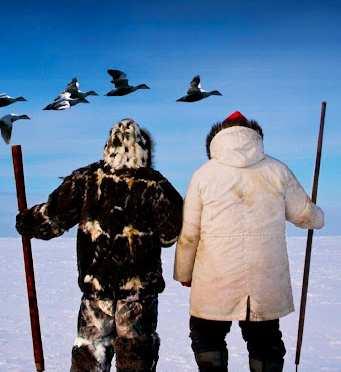
Silent Film Showcase
Transport your patrons back to the golden age of cinema with a Silent Film Showcase. Feature classics from legends like Charlie Chaplin and Buster Keaton, providing a delightful way for audiences to appreciate the artistry and innovation of early filmmakers who laid the groundwork for modern cinema.
Complement the screenings with educational sessions on the history of silent films or exhibits showcasing vintage posters, equipment, and biographies of pioneering directors and actors.
Documentary Film Festival
This event o�ers a chance to delve into important social and environmental issues, inspire activism, and broaden perspectives. Curate a selection of documentaries that cover a variety of topics, such as human rights, climate change, history, and science.
Create a space for post-screening discussions with filmmakers, experts, and community members to facilitate dialogue and encourage critical thinking. The library can also partner with local organizations to organize related workshops, volunteer opportunities, and community outreach initiatives.


Animated Film Festival
Celebrate the art of animation with a festival showcasing various styles and eras of animated films. Include popular animated classics, indie animations, and international
O�er hands-on workshops where participants can learn basic animation skills or experiment with creating their own short animated clips.
Video Librarian
Family-Friendly Fun
Pajama Party Movie Nights
Create a cozy and family-friendly atmosphere with a Pajama Party Movie Night at the library. Invite children and their parents to come in their favorite pajamas, bringing along blankets and stu�ed animals for a comfortable movie-watching experience. Screen beloved animated films or familyfriendly classics that everyone can enjoy together.
Enhance the fun with pre-movie activities like storytelling sessions, crafts, and games related to the movie theme. Serve popcorn, hot chocolate, and other treats to create a true pajama party feel.


"Drive-in" Movie Night
Bring the nostalgia of a drive-in movie theater to the library with a creative twist. Families and movie bu�s can construct cardboard cars beforehand or during the event, turning the library's space into a makeshift drive-in. Once "parked," attendees can settle in for a movie projected onto a large screen. This interactive experience not only celebrates cinematic history but also encourages hands-on creativity among participants of all ages.
To add to the drive-in ambiance, provide themed snacks like popcorn, candy, and soda.

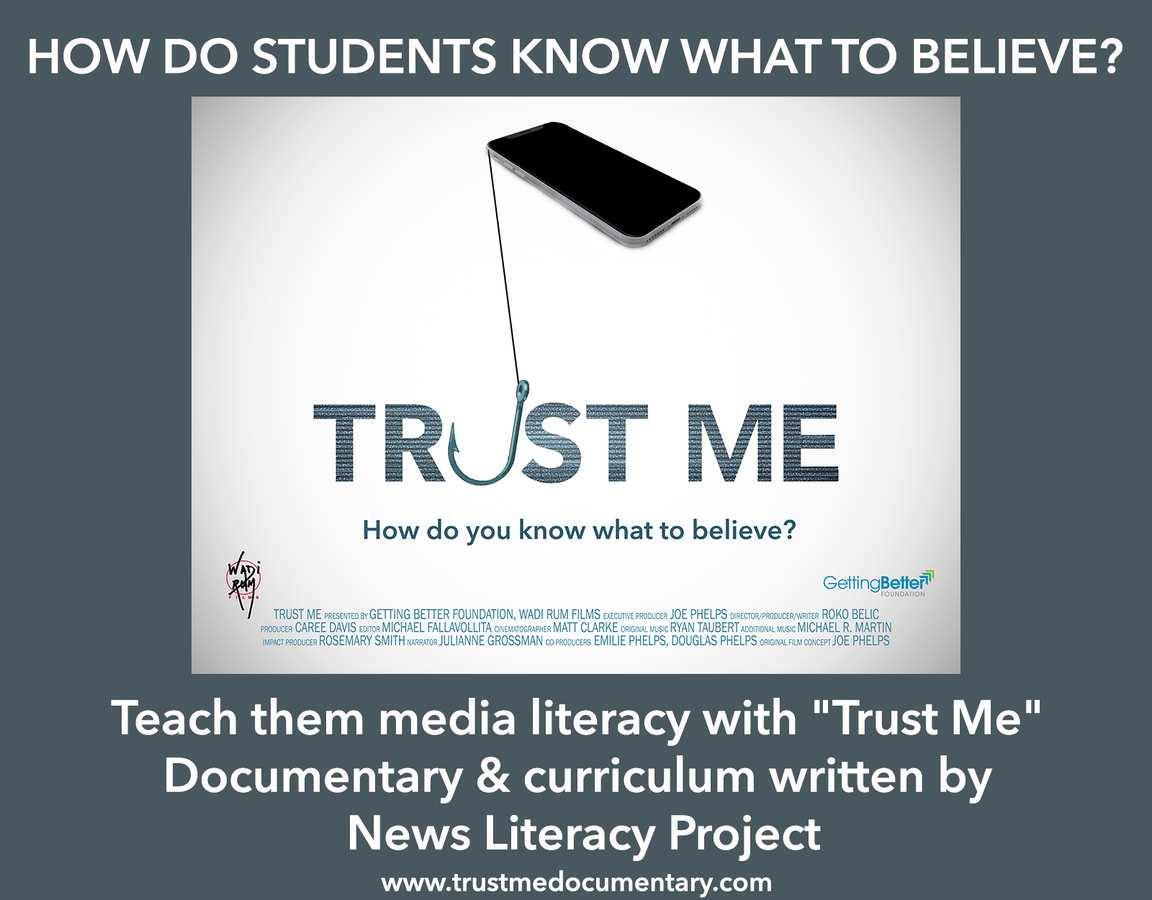
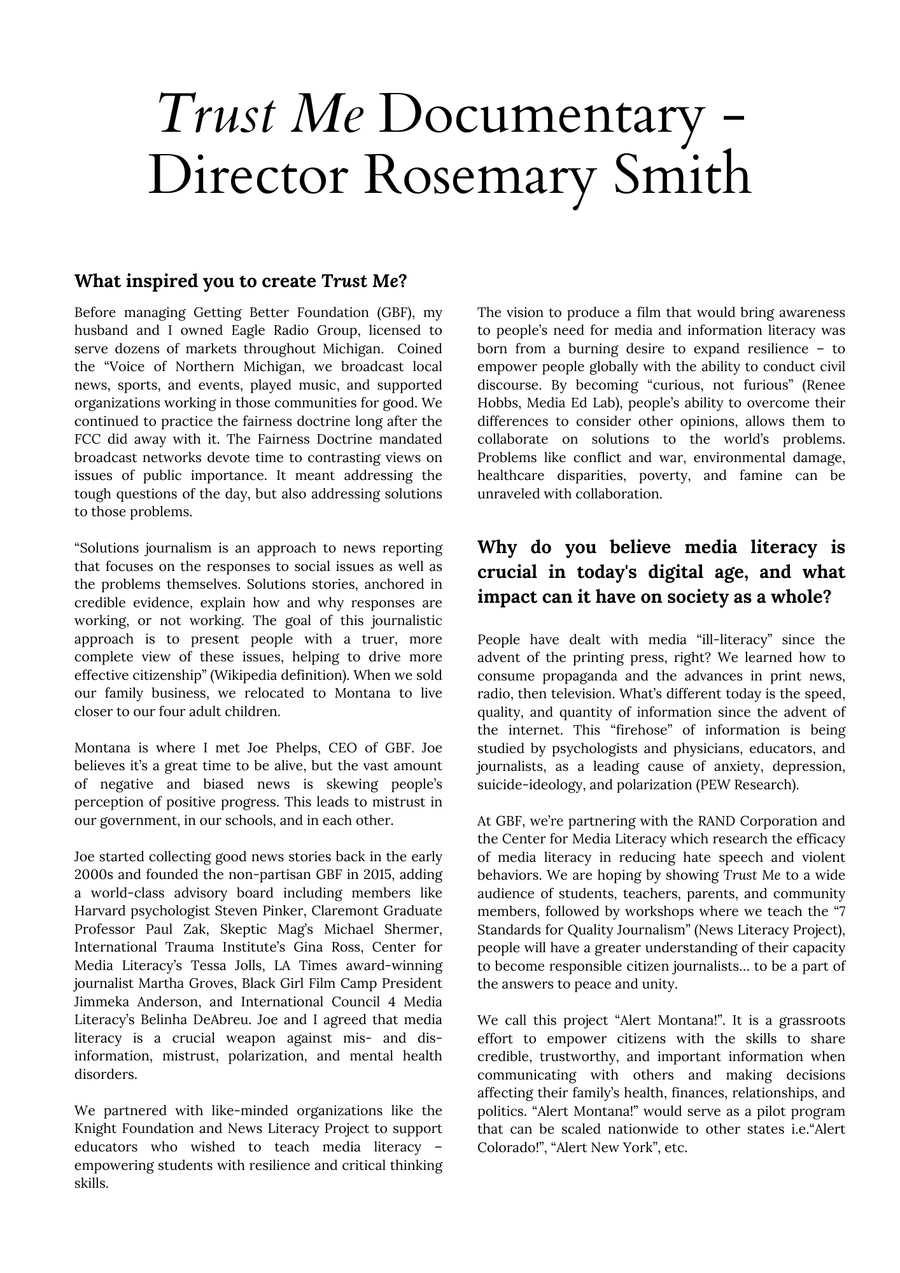
Getting Better Foundation's Rosemary Smith

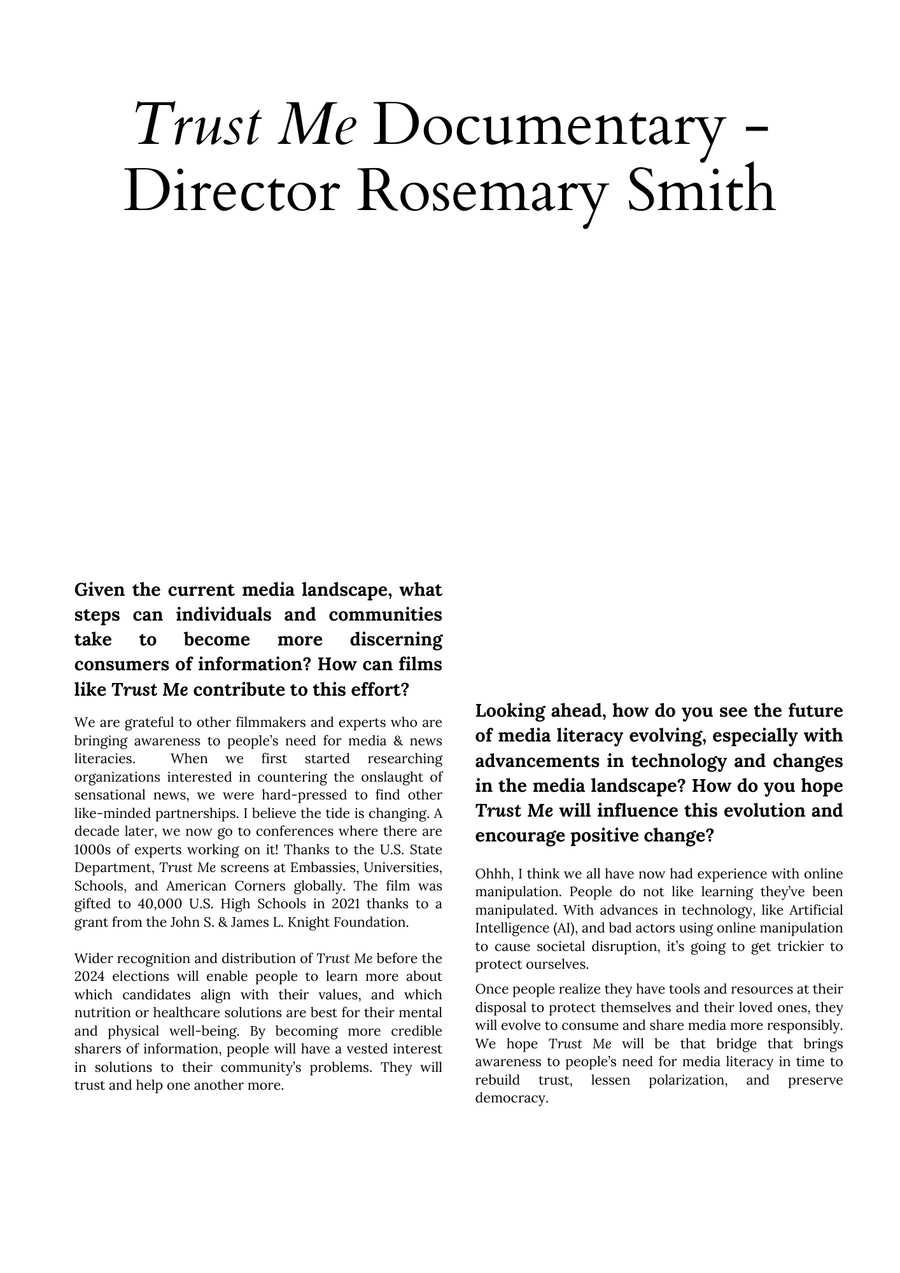
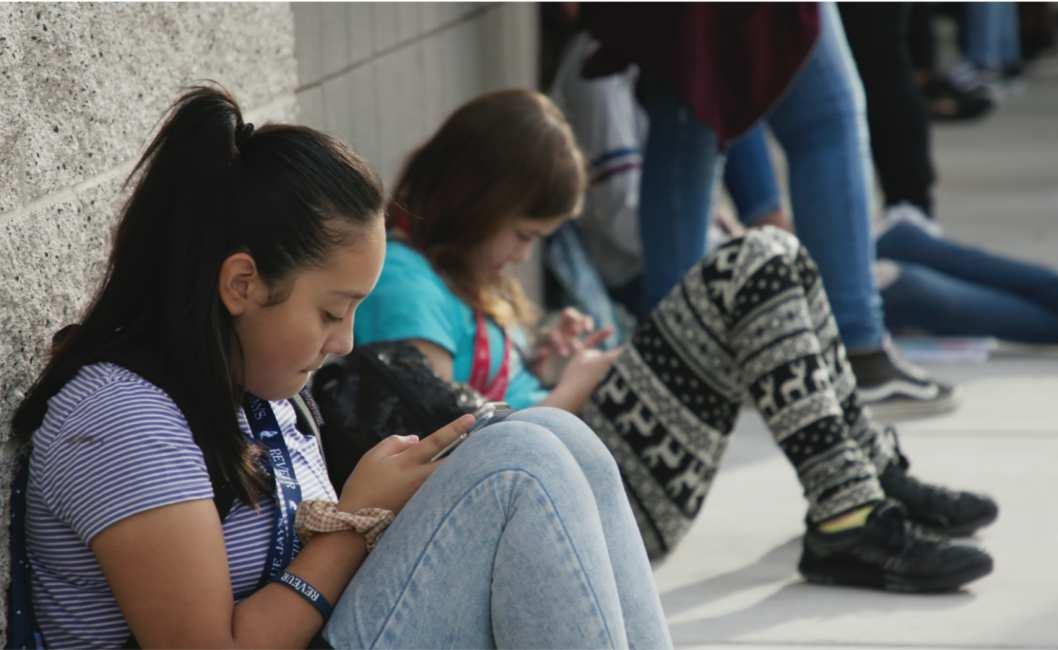
“When people trust one another, they help one another… progress can occur”
-Joe Phelps, CEO Getting Better Foundation, Executive ProducerofTrustMe
Trust Me Video
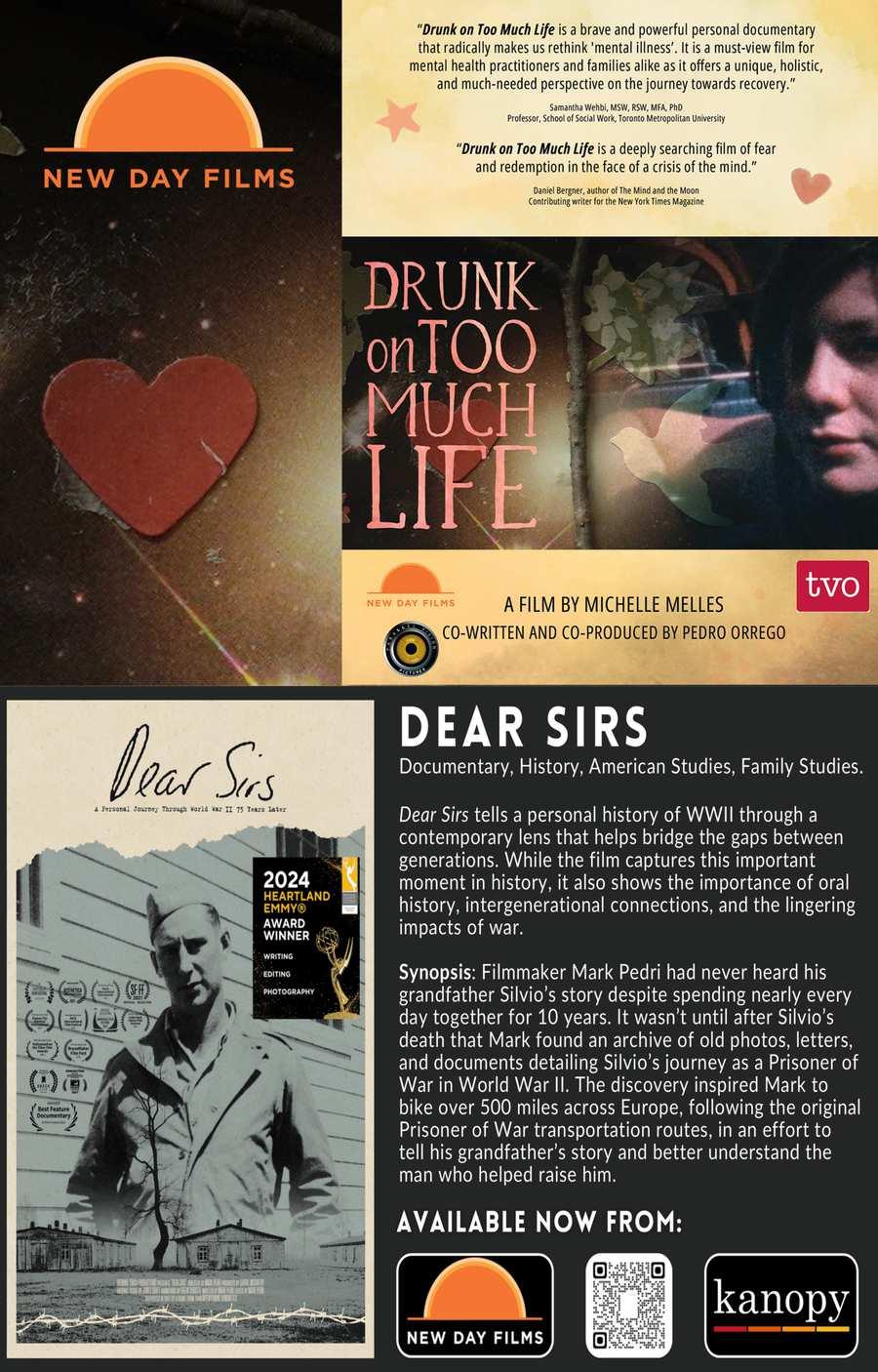
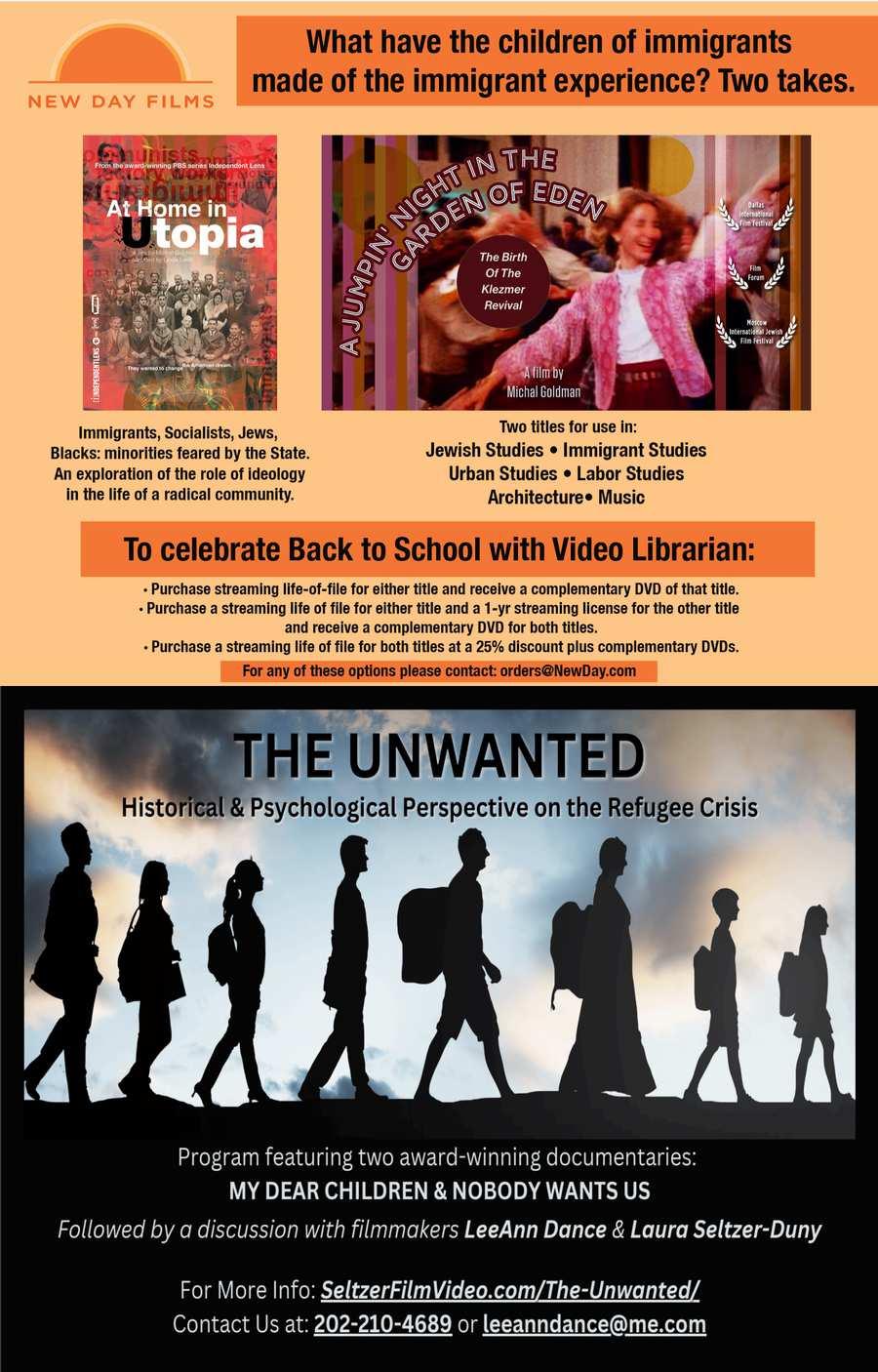
An interview with

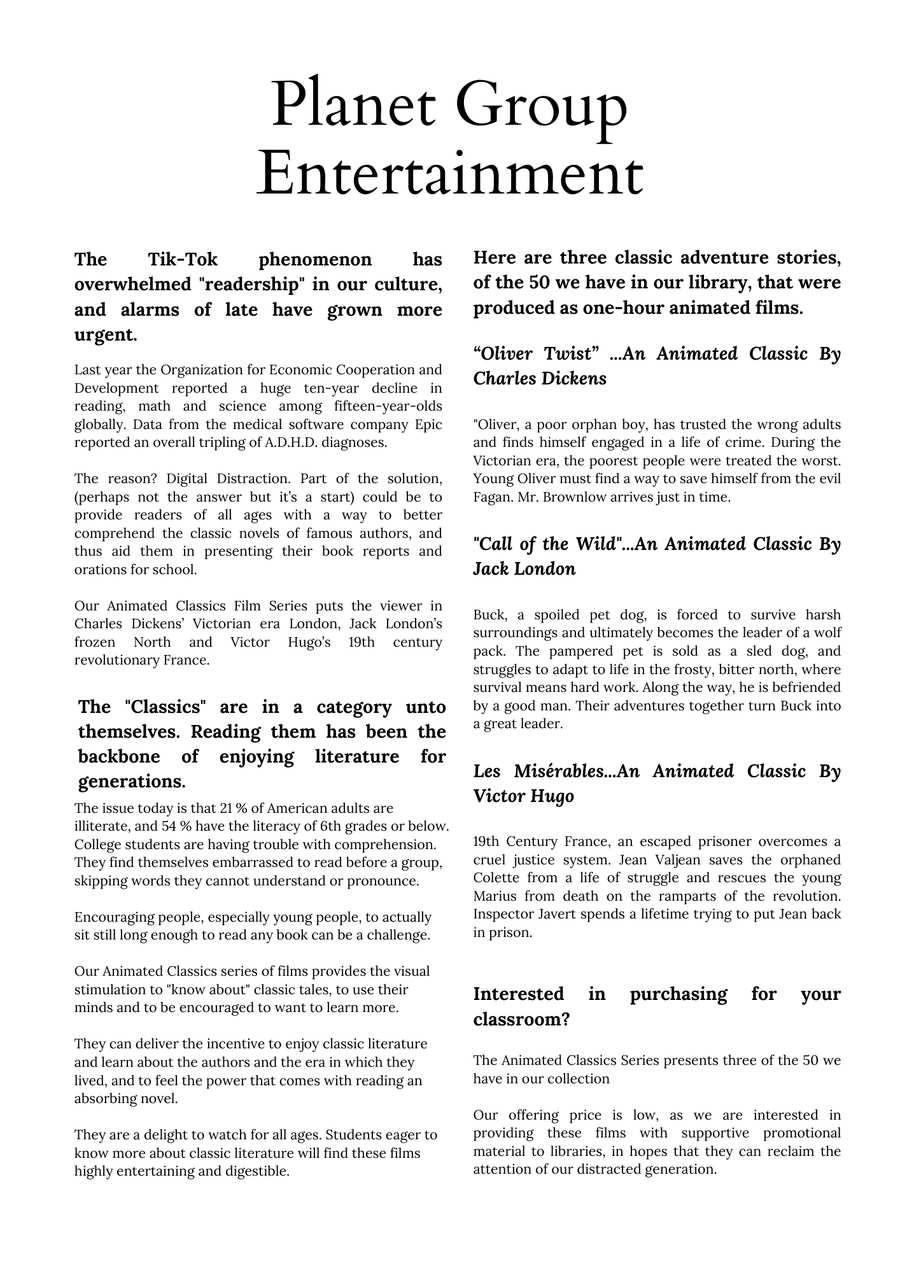
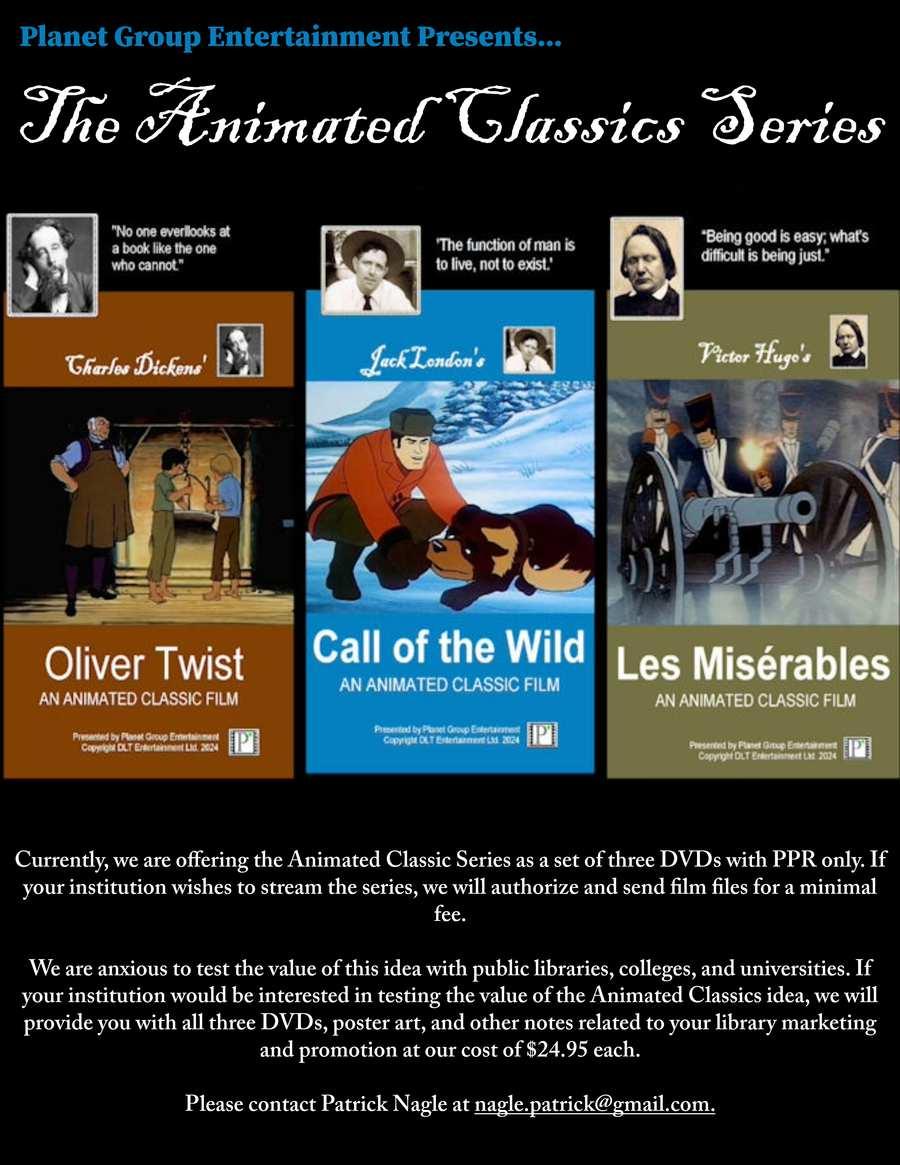
OUR TOP 5 SPANISH LANGUAGE FILMS
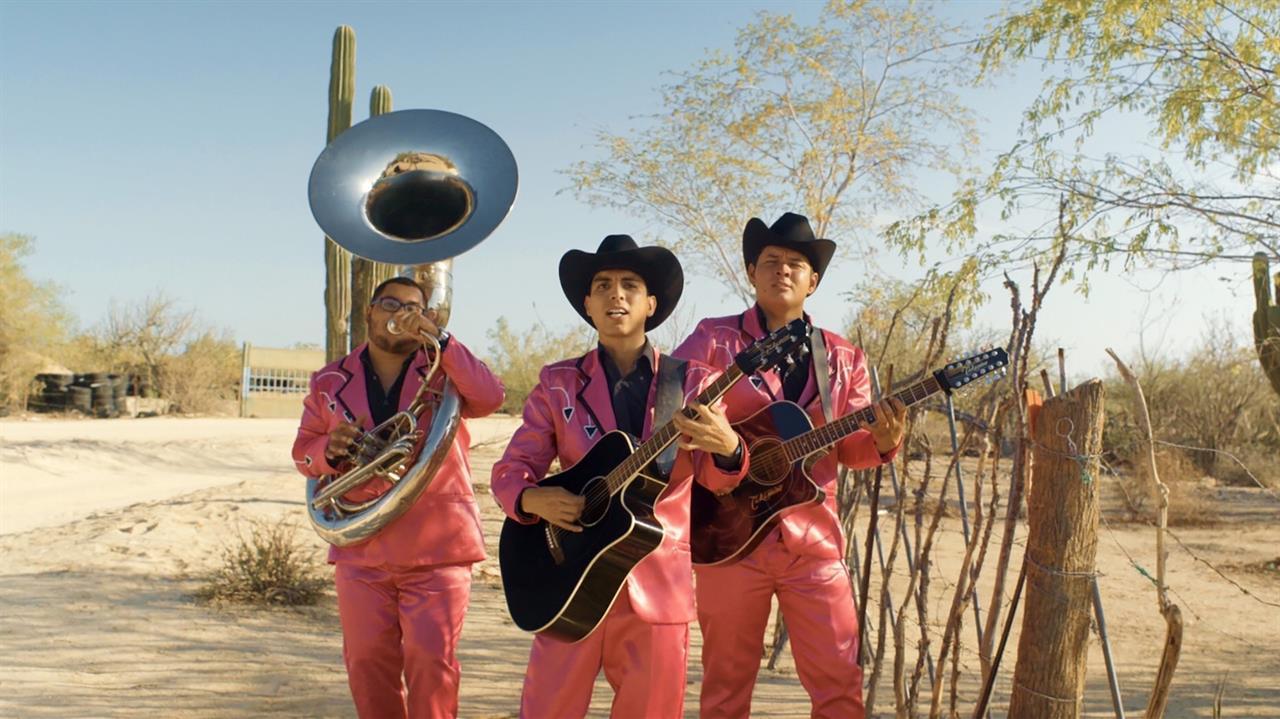


Sublime
Sublime is a raw, authentic Argentinian teen drama that captures the complexities of love, friendship, and self-discovery. Sixteen-year-old Manuel navigates a world of music, friendship, and budding romance. His close bond with childhood friend Felipe is tested as unexpected feelings emerge. The film's authentic portrayal of teenage life, coupled with a killer pop-punk soundtrack, makes it a standout. A must-see for fans of coming-of-age stories and LGBTQ+ representation.
OffTheRoad
This documentary is a captivating exploration of the Baja 1000 o�-road race, its rugged terrain, and the lives of its inhabitants. A local band serves as a compelling narrative device, providing both an opening interview and a recurring presence as a Greek chorus. Their music weaves through the film, o�ering reflections on the region's history, present challenges, and uncertain future. Combined with exceptional cinematography and breathtaking natural landscapes, this innovative approach keeps audiences engaged from start to finish.
CandejoBlanco
When her sister vanishes, a working-class woman infiltrates a ruthless gang. She risks everything, including her own life, to uncover the truth and seek revenge. A gritty, intense thriller reminiscent of Taken, Breaking Bad, and Gomorrah, Cadejo Blanco is a visually stunning and powerfully acted film that delivers a shockingly satisfying conclusion.
FlySoFar
Celina Escher's documentary "Fly So Far" exposes the devastating impact of El Salvador's strict abortion laws. At its core is Teodora Vasquez, wrongfully imprisoned for 30 years after a miscarriage. Her story, and those of 16 other inmates, reveal a system that criminalizes women for having pregnancy complications. The film is a powerful indictment of not only abortion restrictions but also patriarchy, poverty, and the resilience of women united against oppression.
NudoMixteco
Nudo Mixteco is a contemporary drama centered on three individuals returning to their Mixtec hometown, San Mateo. While the film’s pace is often leisurely, it explores the complex lives of Maria, Esteban, and Toña through interwoven narratives and flashbacks. Forced by family crises, they confront their pasts and each other in this poignant exploration of rural Mexican life.
Nudo Mixteco
SPARK MEDIA An interview with
Canyousharesomeofthekeyfilmsyouarereleasing this fall that you think would resonate with librarians/educators?
Our latest documentary Public Defender premiered at Mountainfilm and won the “Moving Mountains Award”. It will be released by The New Yorker this Fall. The documentary explores the remarkable relationship between a liberal public defender in Washington, DC, and her clients involved in the January 6th Capitol riot, delving into how Americans, divided by political differences, can confront and bridge theirdivides.
The film emphasizes the importance of staying engaged and proactive, cutting through disinformation and fostering meaningful dialogue in safe spaces. When I think of those safe spaces, my mind immediately turns to libraries and educational institutions, where people can gather to have difficult conversations that lead to a more informed, understanding and engaged community.
Additionally, we’ve launched a podcast called The People’s Recorder, which will continue through the Fall. This series examines how history is recorded and the power of being heard, using the 1930s Federal Writers’ Project as a lens to view America then and now. It highlights how issues from the Great Depression mirror today’s national debates, such as critical race theory, climate change, immigration, and the question of what it means to be American. We’re thrilled to share that the National Endowment for the Humanities has awarded us a grant to produce a second season. With this grant, we will develop an audience engagement initiative, in consultation with the American Library Association, to create library programming for local communities and educational institutions centered around the podcast.
Will any of your films come with educational resources or guides that teachers can use in conjunctionwiththefilm?
Absolutely. Spark Media is deeply committed to educational outreach for all our productions. We put as much effort into outreach as we do into production because community resonance is just as important to us aswhat appears on screen.
For Public Defender, we are partnering with the Pulitzer Center to create a discussion guide for use in schools and libraries. This film encourages audiences to engage in challenging conversations about our current cultural and political polarization. These discussions are tough because people hold strong and deeply rooted beliefs. The aim of our film is not to change someone's political views but to help both sides better understand each other's perspectives. This process requires patience, empathy, and listening. The guide will provide techniques and specific questions to promote constructive dialogue, making it a valuable tool for schools aiming to foster open, civic discussions.
We are also developing a programming guide for The People’s Recorder podcast. This guide will provide additional background information on the Federal Writers’ Project, context on the issues faced in the 1930s, and their relevance today. It will include discussion questions, further reading guides, and program templates to help schools and libraries create events centered around the podcast.
How do you accommodate institutions with varying budget levels?
We understand the financial challenges of small, nonprofits because we are a small, enterprising organization ourselves. We know what it’s like to punch above our weight. That's whywe offer different pricing for nonprofits, libraries, and educational organizations. If your budget is particularly tight, just reach out to us at info@sparkmedia.org and we'll do our best to find a way to make itwork!
How do you envision your films contributing to long-term educational goals or initiatives in schools?
Most of Spark Media’s films address issues that continue to resonate with audiences, whether in the general public or the classroom. We always strive to find opportunities to bring our films, including those in our back catalog, to schools.For example, my first feature documentary, Partners of the Heart, was broadcast on American Experience in 2003.
Video Librarian
Then, over a decade later we hosted three “Celebration of Excellence” events at a Baltimore high school committed to preparing students for careers in science and medicine. With support from Maryland Humanities, these “Celebration of Excellence” events featured screenings of Partners of the Heart and facilitated round table mentorship discussions with physicians of color and internship coordinators from Johns Hopkins.
We’re always excited to collaborate with libraries to bring more of these enriching programs to life. If you have ideas on how our films or podcasts can support your library’s goals orbe integrated into an event, please reach outto us!
How can your films engage public library patrons, and what themes or topics do you think will resonate with them?
Libraries are the heartbeat of our communities, offering essential services and fostering civic health. We highly value their role and have consistently partnered with them to create engaging programs for local communities. At our Summer 2024 premiere of Public Defender, we partnered with the Wilkinson Library in Telluride to promote a book drive for incarcerated individuals. The library generated significant buzz, contributing scores of books collected onsite. Even after we left the Rocky Mountains, the library continued to support the initiative by sending us more books forSpanish-speaking inmates.
Most of our films resonate with library patrons because they focus on the essence of humanity. By telling personal stories, we introduce broader themes that spark meaningful dialogue on important issues. For example, Scattering CJ isn’t just about suicide prevention; it tells the story of a mother grappling with her grief and finding the courage to become a powerful advocate.The aim is to ignite conversations about mental health, finding resources, and understanding that it’s okay to seek help. Libraries, along with schools, provide a safe space for these vital discussions.
We also recognize that libraries are often underfundedTo support this form of enriched programming, we collaborate with local sponsors and apply for grants. In 2009, we partnered with the American Library Association on an NEH-funded grant to celebrate the 75th anniversary of the New Deal. This initiative resulted in innovative and exciting programs in over 30 libraries and 80 museums nationwide. Some standout events included: conducting intergenerational oral histories, producing live performances of 1930’s style radio theater, catering with 1930s-era food, encouraging patrons to dress in period clothing, and organizing parades featuring antique cars from the era.
Are there any specific resources or support your company offers to librarians or educators to help them effectively incorporate your films into their collections/classrooms?
We bring our boundless enthusiasm and creative resources to enrich all our collaborations. Most of our films come with educational viewers' guides, and we are always eager to partner with schools and libraries to create engaging programs.This includes both our newprojects and our"back catalog."
The issues our films cover—such as representation in the medical community, women’s rights, suicide prevention and grief counseling, and health disparities—remain highly relevant. It’s crucial to continue these conversations. We are always ready and excited to work with libraries and schools to develop new and impactful programming for local communities, students, and educators.

What can you share about any exciting projects or films slated for release in 2025 that our readers should be aware of?
Keep your eyes peeled – or rather, your ears, for the second season of The People’s Recorder. In our next season, launching Fall, 2025, we’ll delve even deeper into the world of the Federal Writers’ Project and explore what it all means today. In the meantime, you can enjoy Season 1 and get ready for more insightful and engaging content. Keep an eye out forupdates!
Scattering CJ
Video Librarian

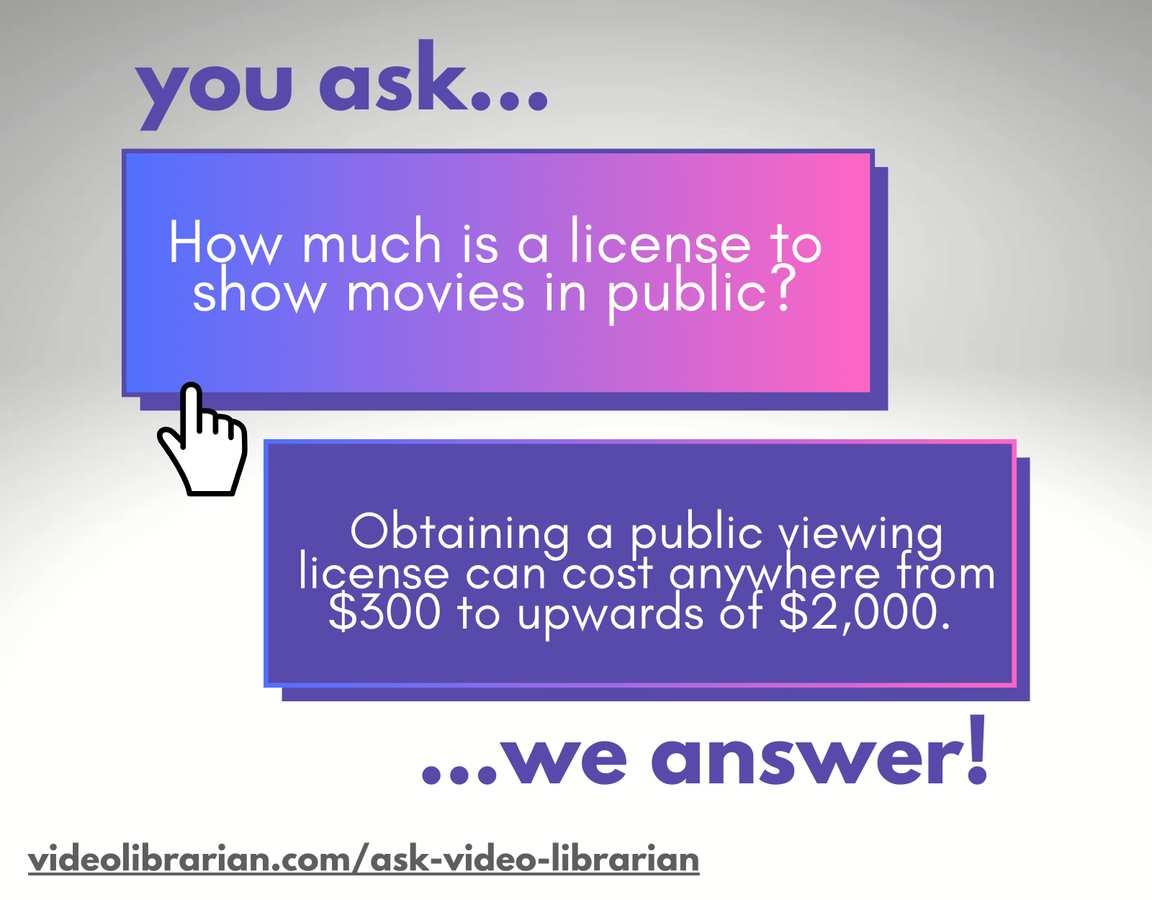

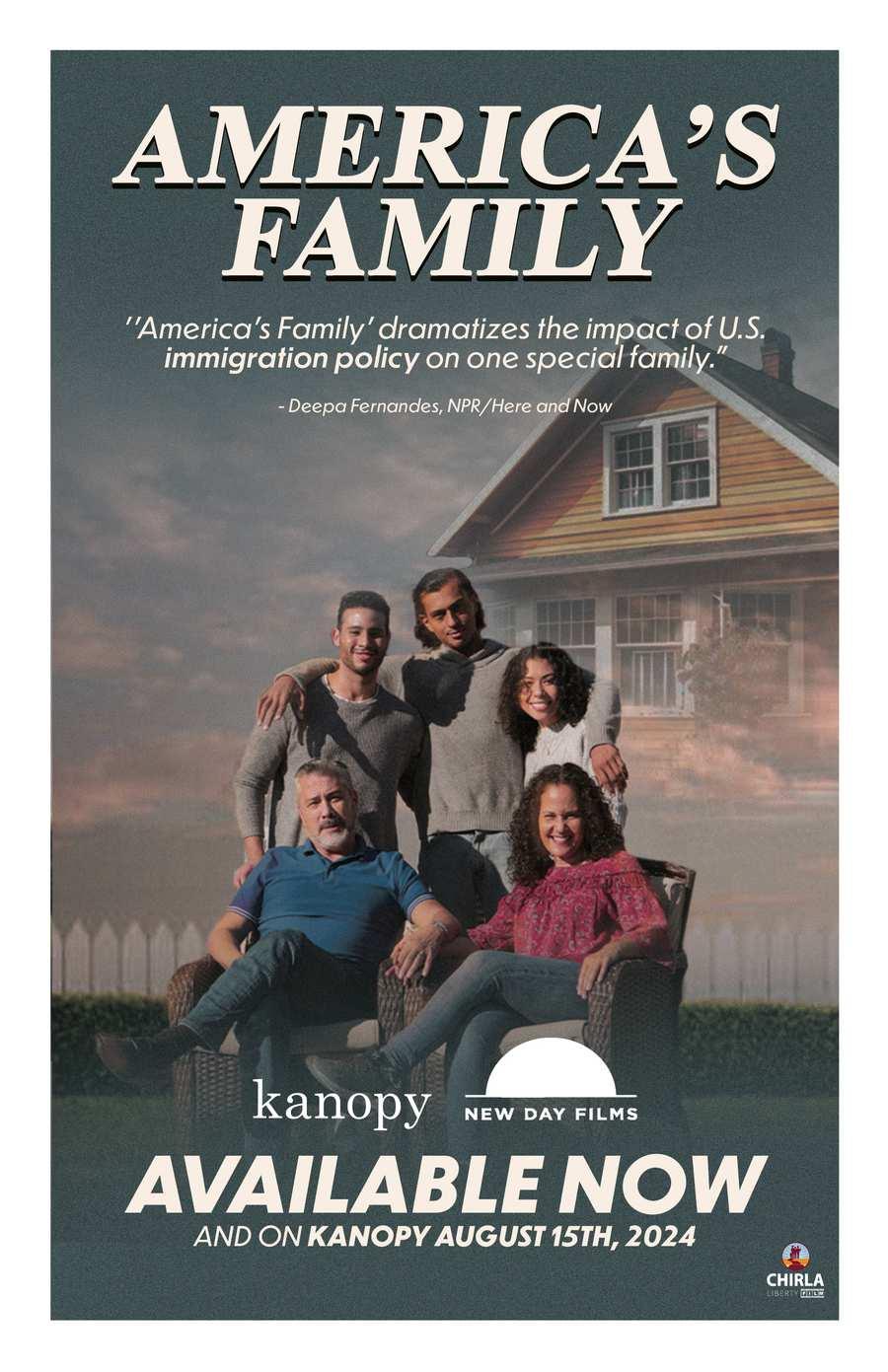
Off-Beat Film Festival Ideas to Liven Up Your Next Event
With so many films available to stream at home, it is harder than ever to draw attendees to live events. This list includes five o�-beat ideas to spice up your film festival, screening, or event. By incorporating various forms of mixed media, performance, or community interaction, your film festival can transform from a bland screening to a memorable moment that brings people together.
Create a Spectacle with Live Performances
Incorporating live performances into a film screening is a creative way to make the events of a film come to life. Classic films like Fellini's La Strada can be enhanced by live circus performers, like clowns and strongmen. You can even coordinate a bicycle race while showing the Bicycle �ief.
The True/False Film Fest in Columbia has successfully woven live performances into their annual festival. The nonfiction festival brings the whole town together. Each year, the True/False Film Fest chooses a theme for their festival and plans activities throughout the event that tie into the theme. With filmmaker participation, attendees from all over the world make the festival an exciting experience.
Start planning your live performance by ordering this handheld wired microphone.
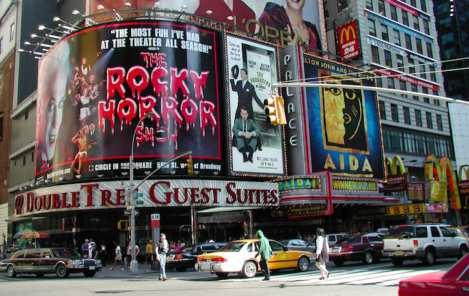
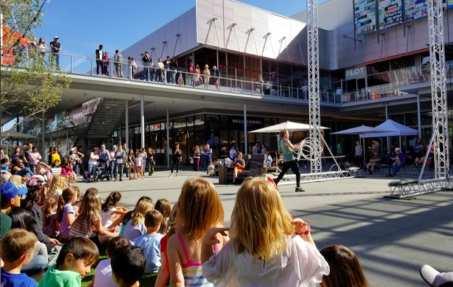
Invite Audience Participation and Interaction
Audience interaction is another way film festivals can expand into memorable events. Screening a well-known film would become an exciting, new experience. Fans could act out scenes from the film, like the shadow casts popular with screenings of the Rocky Horror Picture Show. Interaction can range from audience members performing a musical number or designating stalls for actors to perform a scene.
Start a Buzz with a Filmmaking Competition
A "make your own short" contest can draw local filmmakers into many di�erent kinds of film festivals. Filmmakers can submit their short films and entries can be screened preceding a feature presentation. Entries can adhere to a certain theme or style in accordance with the feature screening. A contest with audience voting would also bring in even more interaction to your festival.
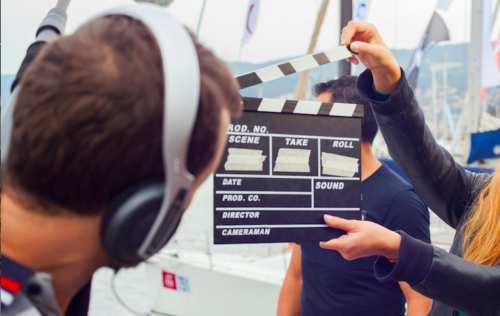
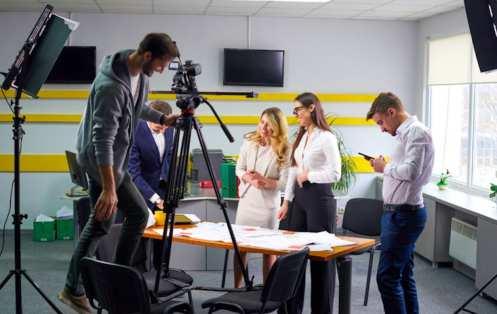
Reimagine a Beloved Classic
It is also possible to include audience interaction with pre-recorded segments. Fans can re-imagine segments of a film and these recording can be incorporated into the film screening. This could introduce a range of new perspectives and challenge audience member's perceptions of a beloved classic. With pre-performance vetting and dedication, anything is possible.
Serve Specialty Food –More Than Just Popcorn
Serving food alongside a film screening is another creative way to spice up an event. Audience members crave food other than the the typical popcorn and soda. A spaghetti dinner served alongside a screening of �e Apartment or selling slices of pie during Waitress are possible options. These are great ways to draw audiences in.

For some out-of-the-box ideas on what snacks to provide, order this cookbook Classic Snacks Made From Scratch.
Optimist An interview with
Canyousharesomeofthekeyfilmsyouarereleasing this fall that you think would resonate with librarians/educators?
This is Not Financial Advice -- An award-winning feature length documentary that exposes the risks and rewards of today's market through expert commentary and the anxiety-inducing stories of real people trying to make millions. Called a "thought-provoking masterpiece" by the Washington Post, the film is now available on Kanopy and has made strides in advancing financial education among high school and college students through partnerships with Next Gen Personal Finance, the National Endowment for Financial Education, and the Financial Industry Regulatory Authority.
Abundance: The Farmlink Story -- An award-winning documentary that follows a group of college students who catalyze a national movement to end hunger in the United States. The short documentary world premiered in front of Congress, has been screened at over 50+ in person film festivals, conferences, and events, and through fundraising efforts has helped The Farmlink Project move over 20 million lbs of food to communities in need.
Champions of the Golden Valley -- An inspiring ski story set in the mountainous region of Afghanistan that also delves into the complex journey of becoming a refugee, exploring themes of home, community, and the power of sports to bring people together. The film team is partnered with the International Rescue Committee, Women for Afghan Women, and other great organizations to help viewers learn more abouthowthey can supportthe refugee community.
Will any of your films come with educational resources or guides that teachers can use in conjunctionwiththefilm?
Yes! This is Not Financial Advice has actually been reedited into shorter film modules, and we've partnered with Next Gen Personal Finance to create bespoke viewing/discussion guides for each module. These can be accessed through the Educator Portal on the film's website.
How do you accommodate institutions with varying budget levels?
We are very flexible when it comes to budget and neverwant cost to deter a school or teacher from sharing our films and resources with students. We have standard film license fees for most of our films, as well as speaking engagement fees if a school wants tohost avirtual or in-person Q&A orkeynote with the film's directors, who are also the co-founders of Optimist. We can always adjust these fees to work with the school's budget; and if there is no budget, we can also get creative and make itwork!
What are the best films for college campus screenings that promote student engagement and discussion?
We're particularly excited about bringing This is Not Financial Advice to college campuses, as we're in the middle of a Financial Education Tour in partnership with the Financial Industry Regulatory Authority (FINRA). Using the film as a centerpiece, our goal is to empower and equip students to become smart investors and improve their relationship with money. For each event, we screen the film (*a newly edited 60 min version) and have a 30-min postfilm discussion with the film's director and a representative from FINRA. If any colleges are interested in exploring this type of engagement, we encourage you to reach out to samantha@optimist.co.
How do you envision your films contributing to long-term educational goals or initiatives in schools?
We believe film has the power to incite real, positive change in the world – to inspire empathy and nurture optimism One of the places we see this most vibrantly is in the classroom,where students are eagerto experience theworld in new ways and sharpen their sense of purpose. Our films and their accompanying resources can supplement, or complement, the amazing work and curricula that teachers are already leading. Specifically, we have seen our films spark critical thinking, increase feelings of empathy and the desire to help others, inspire global and cultural curiosity, and introduce, challenge and change perspectives on social issues from gender equity to immigration. Ultimately, our films offer authentic, human stories that resonate with audiences everywhere -- particularly young people -- and inspire them to step into theirroles as agents of change.
Video Librarian
How can your films engage students, and what themes or topics do you think will resonate with them?
First and foremost, our films are compelling and well made; they have been released on Netflix, HBO, PBS, National Geographic, The Atlantic (and more) and hav won awards at film festivals around the world. Our fil are also accessible -- we have found that audiences relate to and connect with the people and communitie we spotlight; they feel invested in their stories a to learn more and get involved. Our films span the following topics, modeled lightly after the UN's sustainability goals, all of which I believe studen teachers will find worthwhile: civic engagement, cr justice, financial empowerment, food access, gender equity, migration, sustainability.
What can you share about any exciting projects or f slated for release in 2025 that our readers should aware of?
-In 2025, we'll be focused on leading an education screening tour with Champions of the Golden Valley, well continuing ourFinancial EducationTourwith F -We will be upgrading our educational materials and experiences for each of our previous films, starting Ourfirst documentary, Living on One Dollar. We will be finding new ways to make all of our films and their resources more readily and freely available to teachers.

We will build a new version of our recently launched Education Site, specificallytailored forteachers. We will publish our first annual impact report, adapted and updated from our recently published 10 year impact report.

Champions of �e Golden Valley
�is is Not Financial Advice

